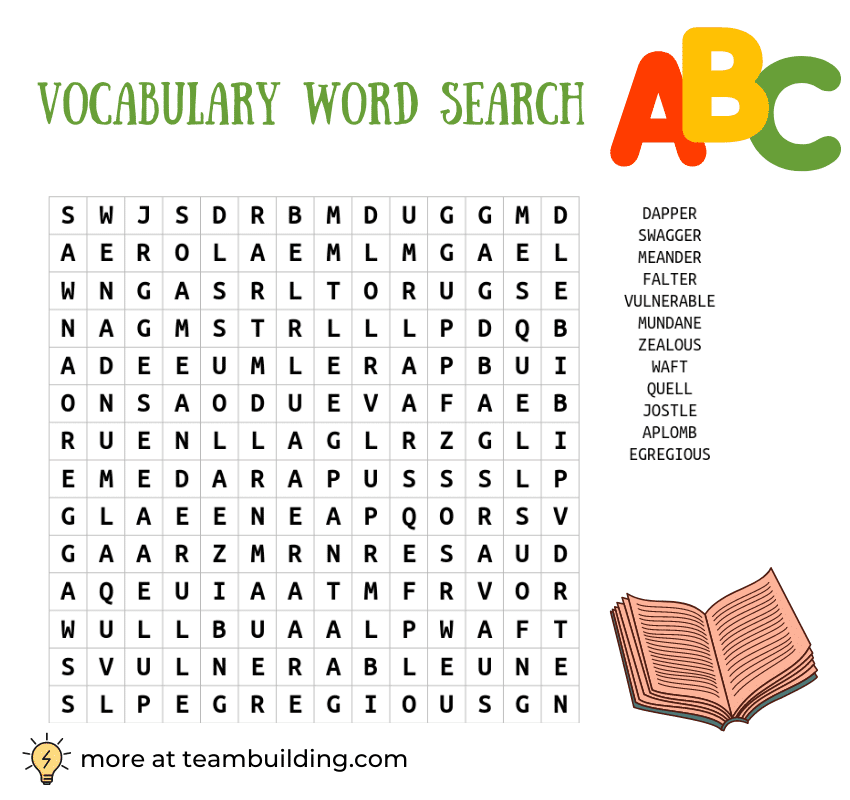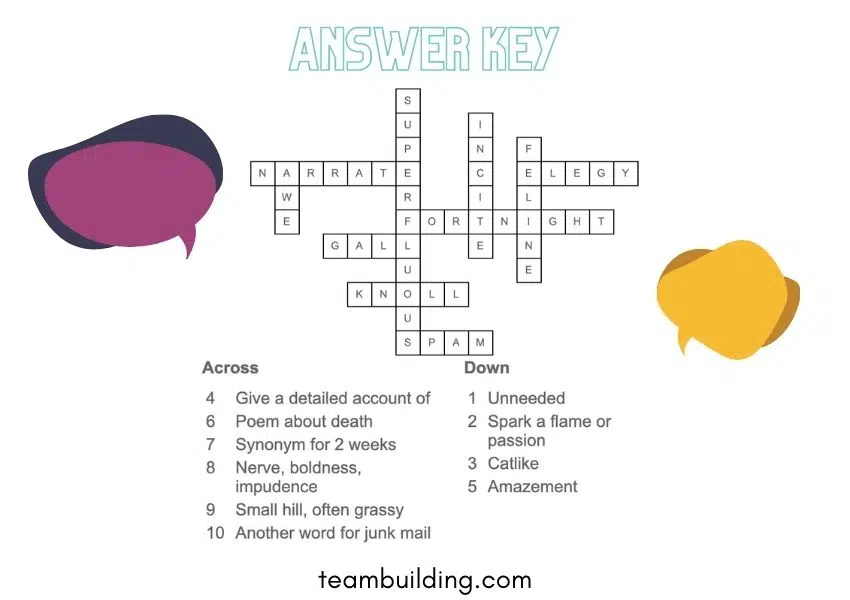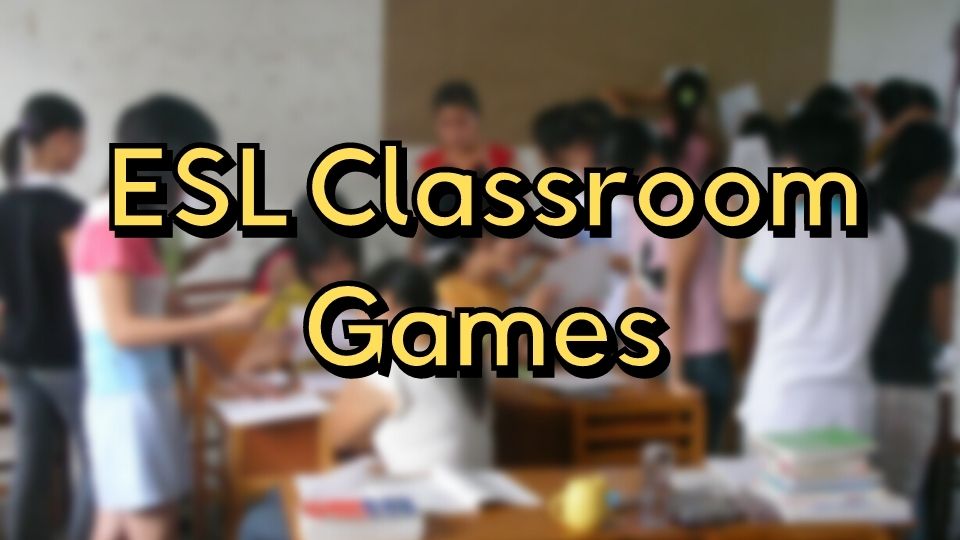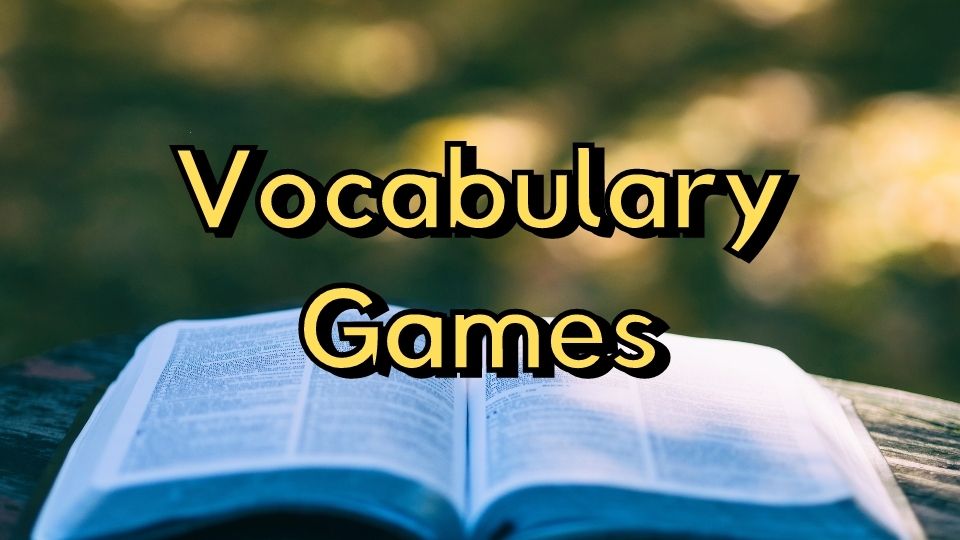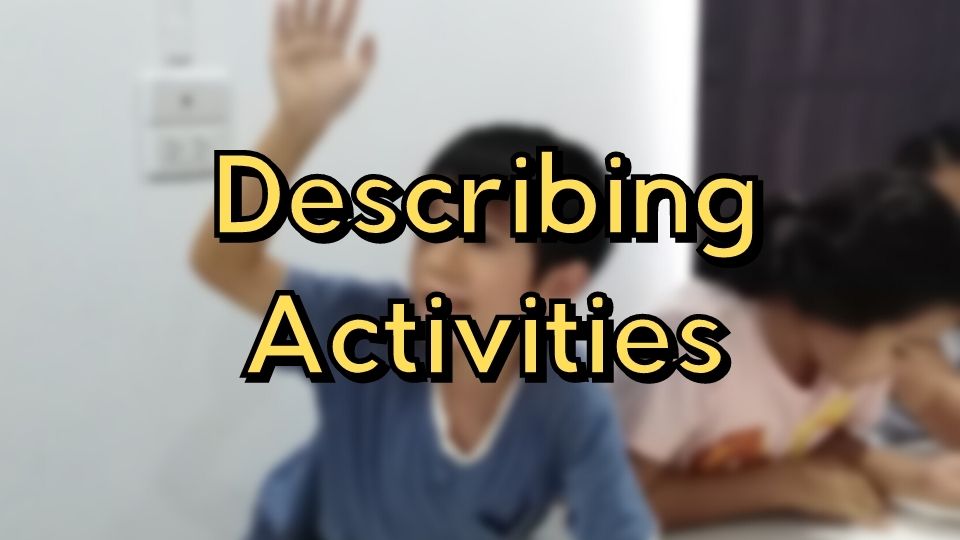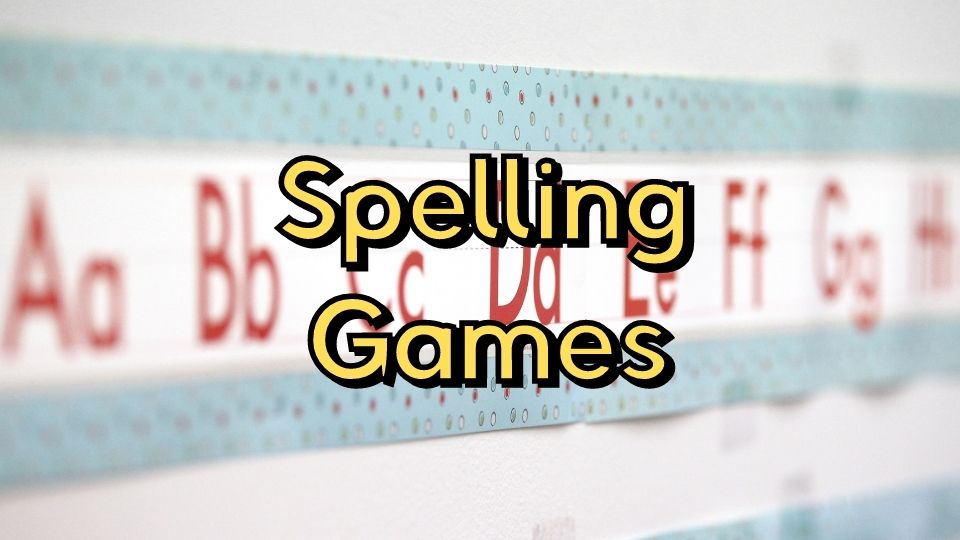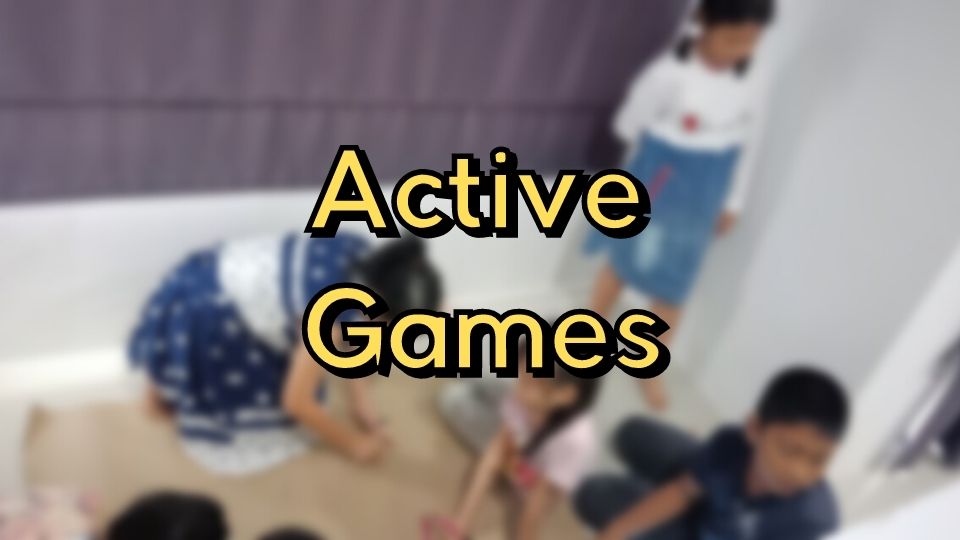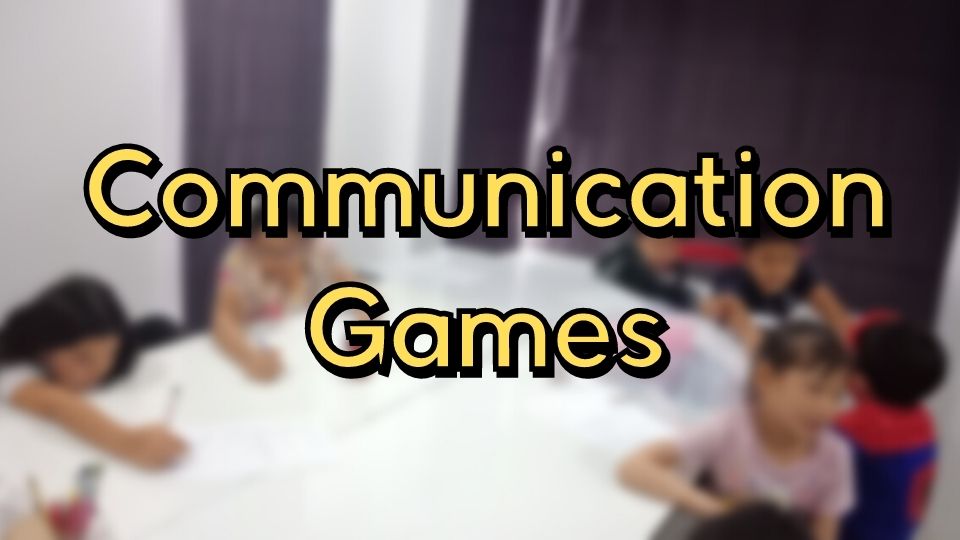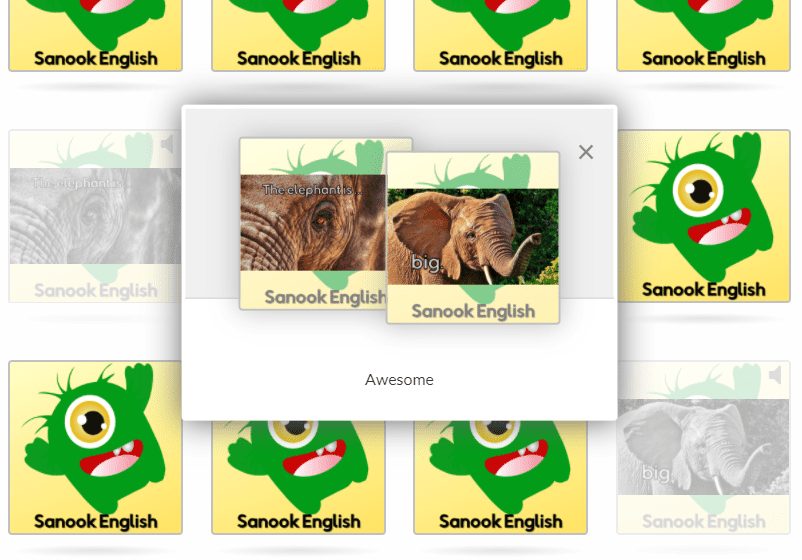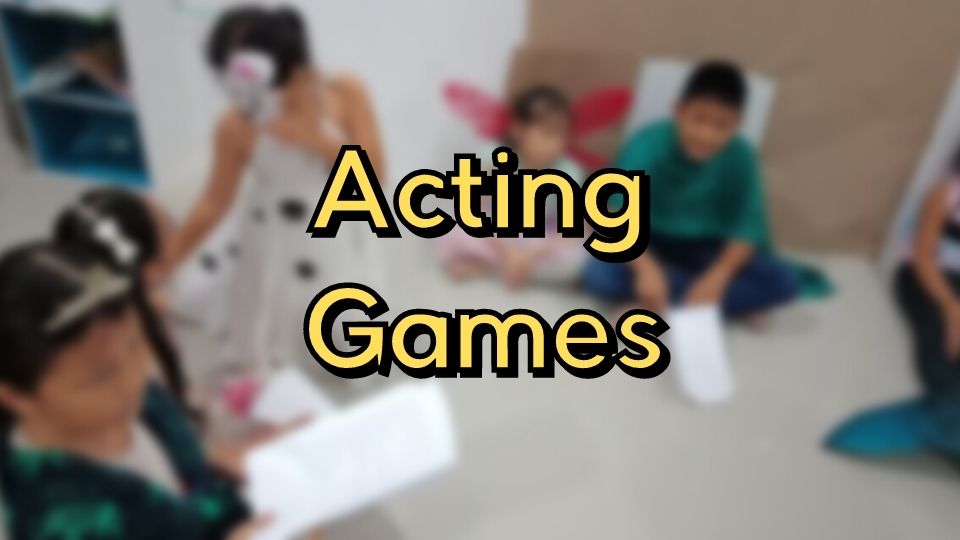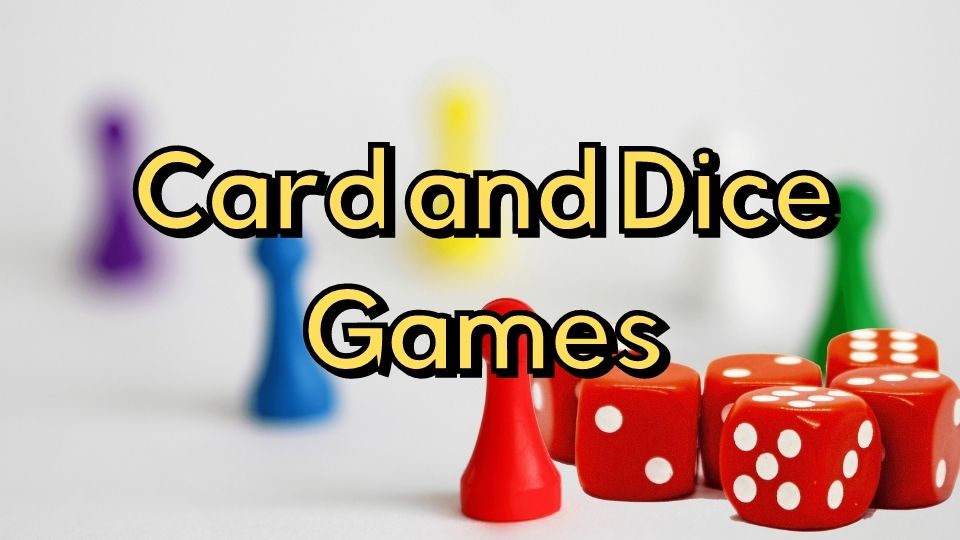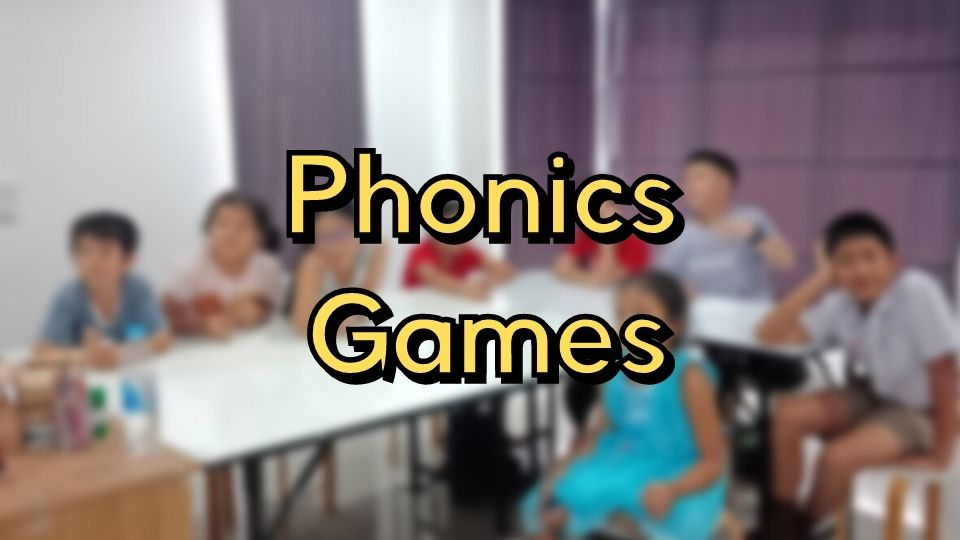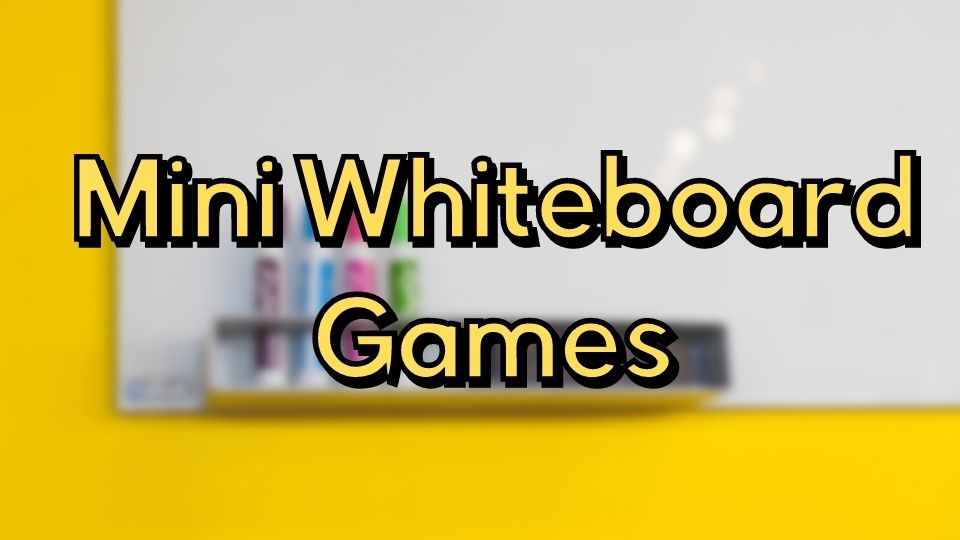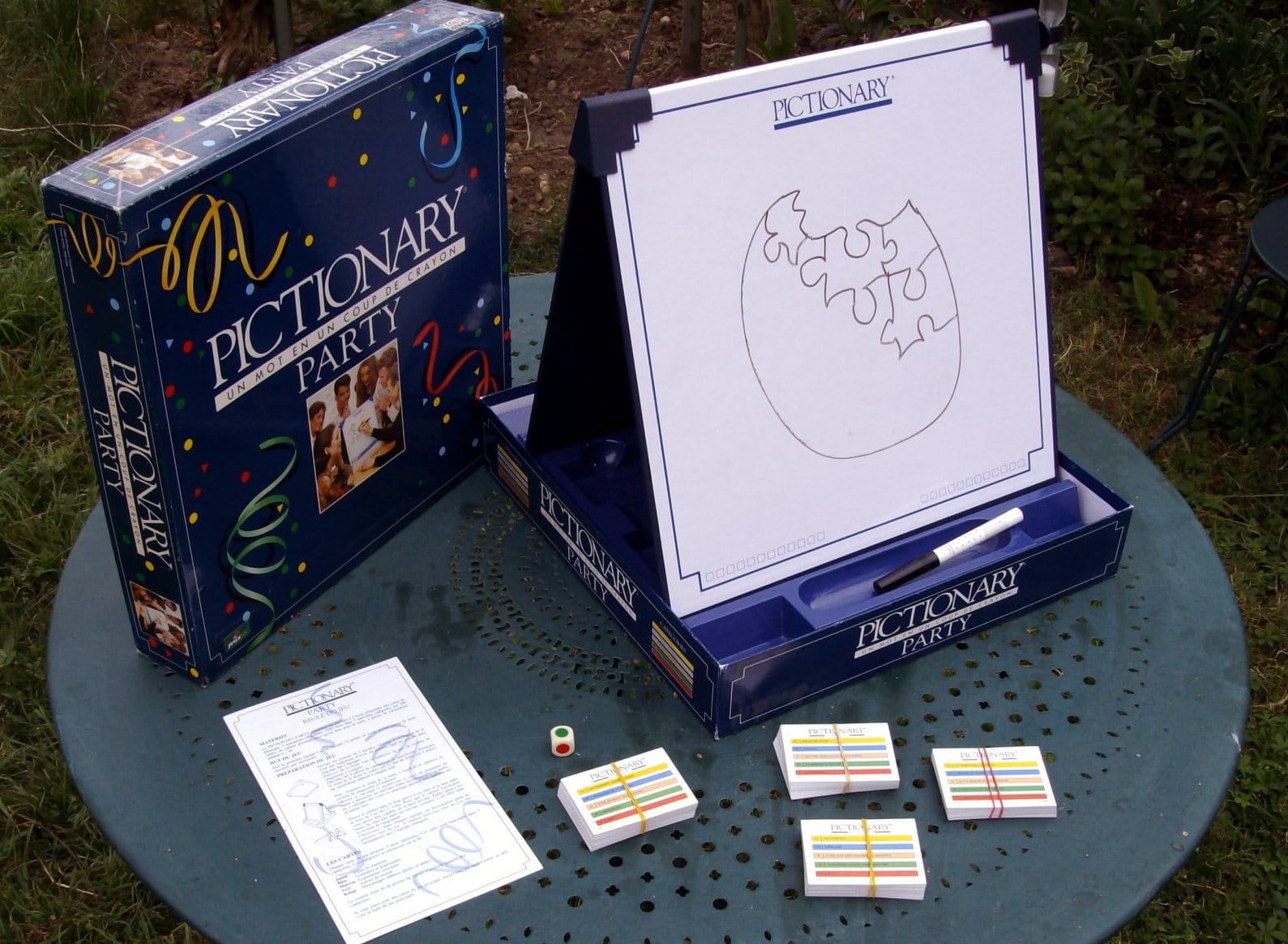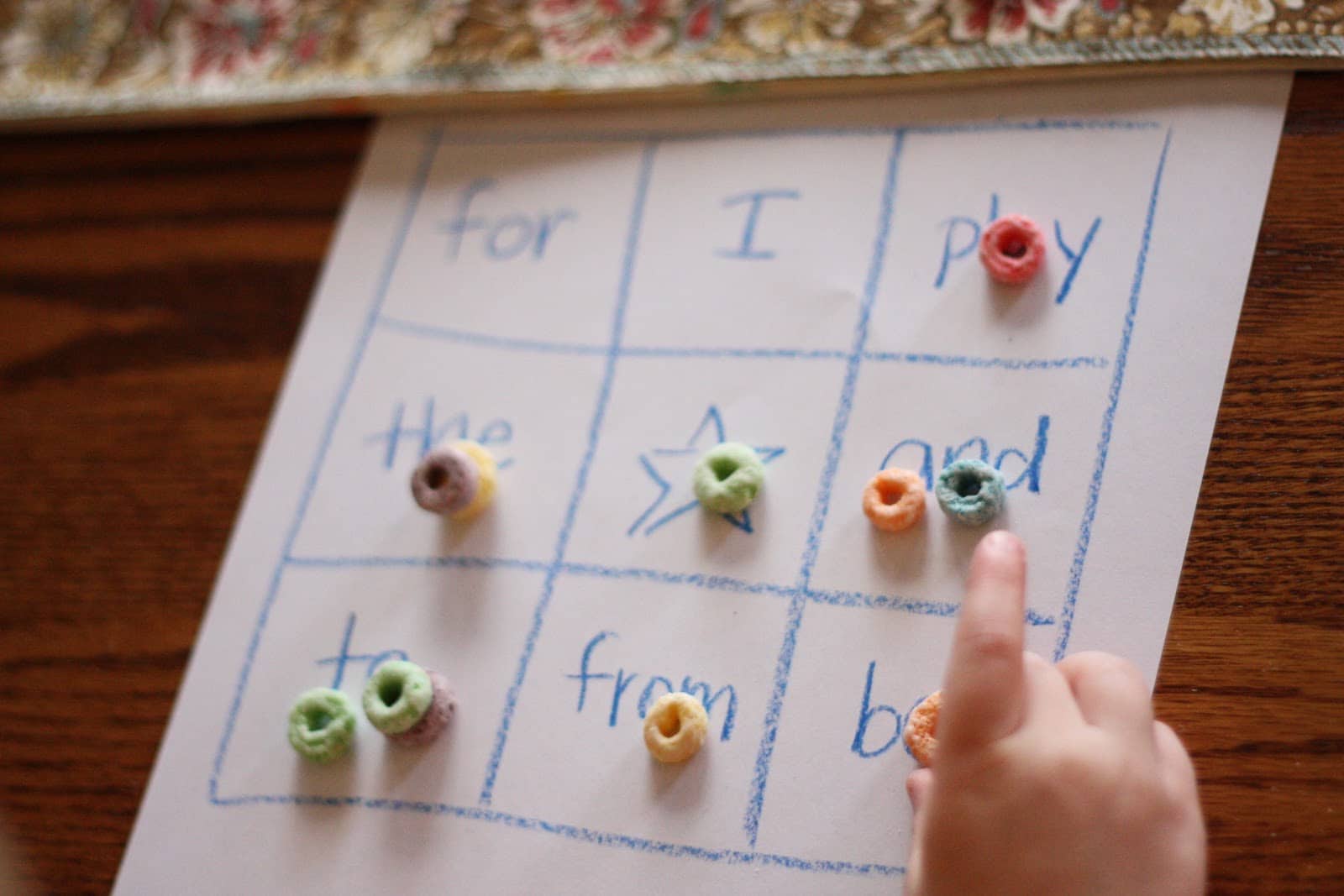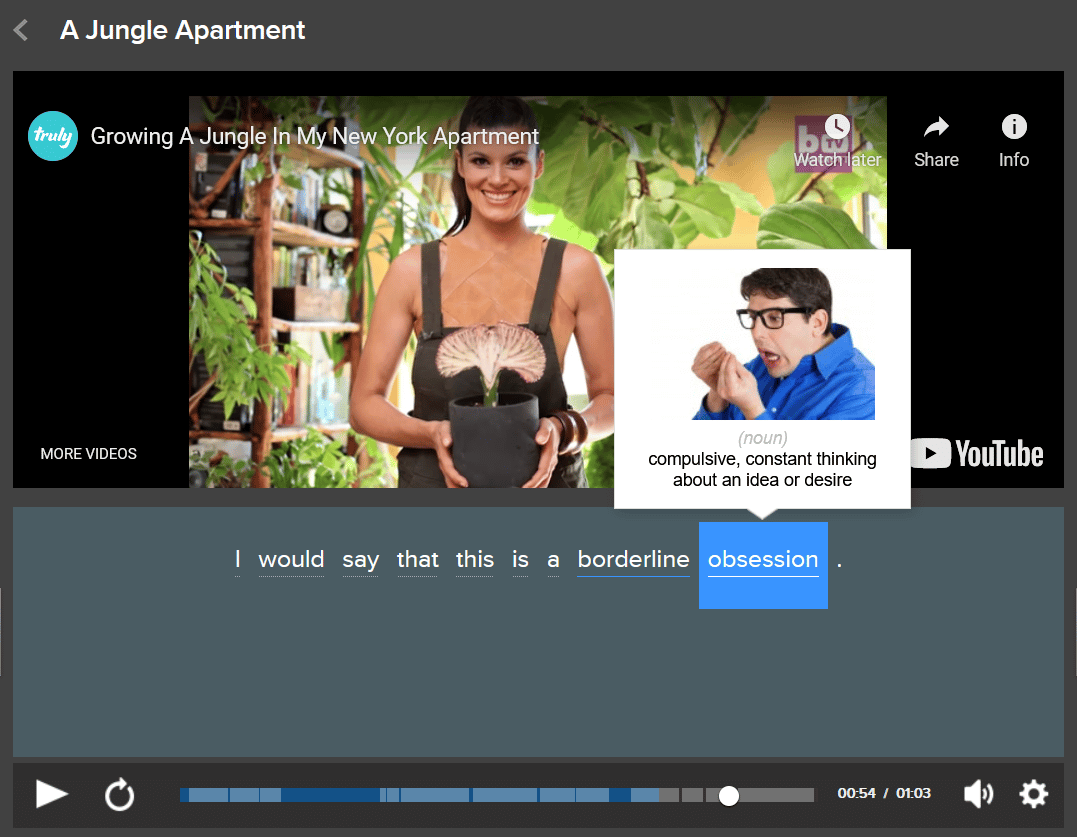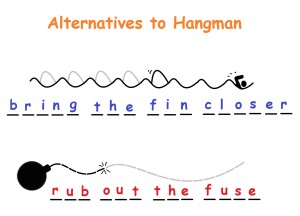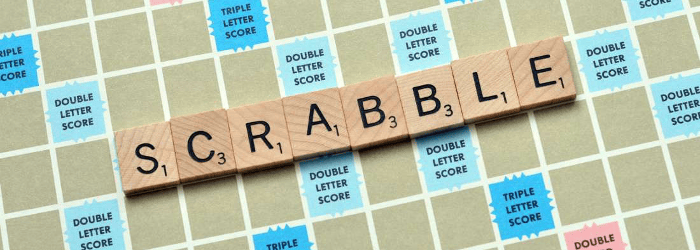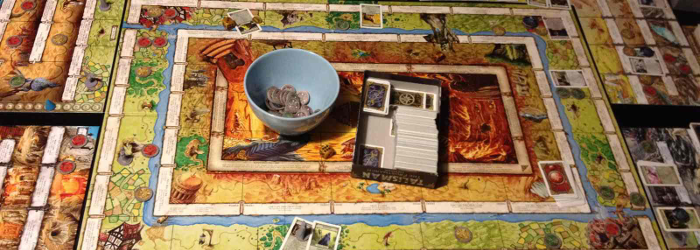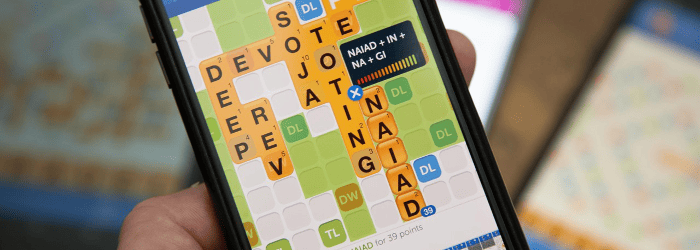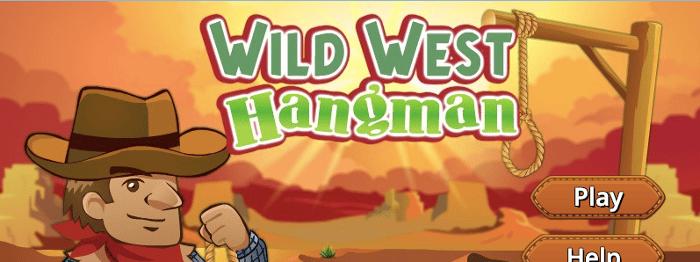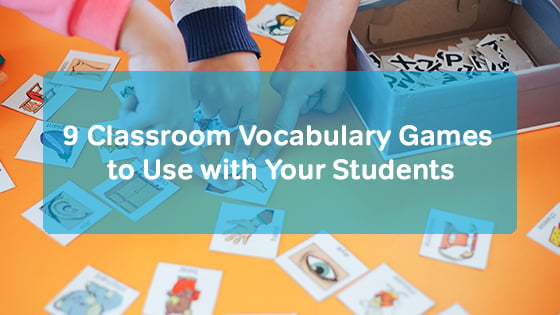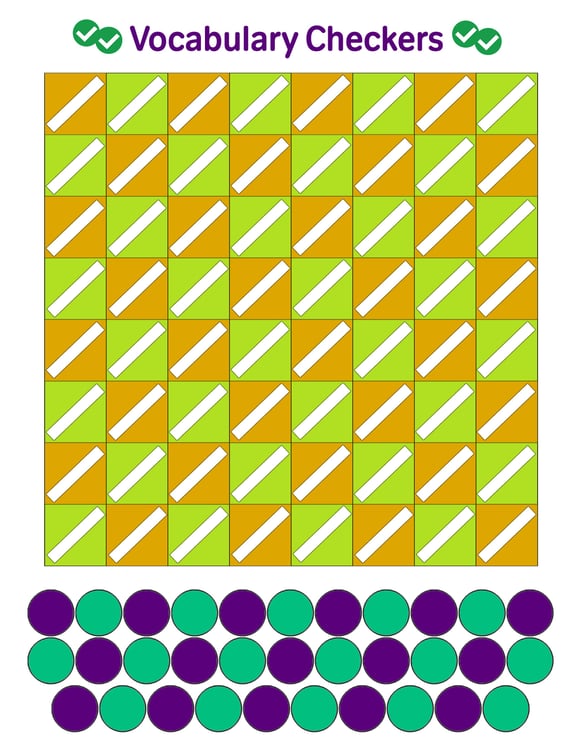You found our list of fun and simple vocabulary games for adults.
Vocabulary games are activities that include language and wordplay. Example games include Word Association and Hang Man. Players can enjoy vocabulary games in person or online. The purpose of these games is to strengthen vocabulary skills. These games are also known as “vocab games”, “letter games” and “vocabulary building games.”
These games make great online classroom activities and communication games, and can be used as online fun activities for employees.
This list includes:
- vocabulary games for adults
- simple vocabulary word games for adults
- fun online vocabulary games and activities
- English vocabulary games
- vocabulary games in English
- games to improve vocabulary
- vocabulary building activities
- vocab review games
- vocabulary games for students
Get ready to play!
List of vocabulary games
From Pictionary to word scrambles to synonym memory, here is a list of fun word games to play in classrooms, at parties, or during meetings.
1. Vocabulary Pictionary
Pictionary is a game of charades where players draw words instead of acting them out.
To play:
- Split the group into teams.
- Each round, assign one team member to draw.
- Give the drawing team member a word.
- Allow up to sixty seconds for teammates to guess.
- If the team guesses correctly, then assign one point.
You can give other teams the opportunity to steal, or move onto the next team’s turn. The game is a great way to practice new vocabulary, as players connect the word with an image. Pictionary is a fun game for virtual parties or in-person affairs.
To play Pictionary online, draw on the whiteboard app feature on your online meeting software.
2. Word Association
Word Association is one of the best vocabulary games for kids and classrooms since playing does not require a large vocabulary. The rules are simple and easy to understand. Typically, the game involves two players.
To play:
- Player one says a word.
- Player two responds with the first word that comes to mind.
- Player one either chooses a new word or responds to player two’s word.
- The game continues until one player repeats a word or pauses too long.
The rapid pace of the game generates excitement and occasionally results in funny answers.
If a student makes a mistake, then the teacher can pause the game and ask the student to explain or find a more fitting word. Ideally, gamemasters should allow players a few extra seconds to respond. Players should never feel embarrassed. There are no wrong answers in word association, but the game can serve as a learning opportunity to find better words.
If playing via Zoom, then player one or the teacher speaks a word, and other students answer in the chat. The class counts up matching answers and discusses different responses, guessing the reasoning behind each answer.
3. Vocabulary Hangman
Hangman is a classic chalkboard word game that translates easily to online play, thanks to digital whiteboards.
To play:
- Assign a player a word.
- The player draws a series of blanks corresponding to the number of letters in the word.
- Other players guess letters.
- If the letter is in the word, then the “executioner” fills in the blank. If not, then the executioner draws one portion of the gallows.
- The game ends when players guess the word, or when the picture is complete.
The best words to use for hangman contain less-used letters like z, x, and q. Examples of hard hangman words include zigzagging, razzmatazz, and quadrants.
4. Word search
Word searches are common classroom vocabulary games. These activities work well for handouts, and you can play during video calls by using the whiteboard feature and enabling annotation.
We made a sample word search you can use.
To make the game more competitive and exciting, turn the challenge into a race and award prizes to the first players to complete the puzzles.
5. Crossword
Crossword puzzles consist of a series of interconnecting boxes, each of which starts blank but contains one letter by the end of the game. Under the puzzle are two lists of clues, across and down respectively. Solvers need to consider the meaning of words, number of letters, and surrounding words, making the game strategic as well as literary.
Here is an example of a crossword puzzle you can use with your class or team.
Here is the answer key.
Crosswords are great word games for any age or skill level because puzzle makers can adjust the difficulty to suit players. To make your own crossword puzzle, use an online crossword creator.
6. Word Scramble
Word scrambles make great games for English class, and adults enjoy these language brain teasers as well. Simply mix up the order of the letters and ask players to unscramble and identify the original words.
Here is a sample to start with.
And here is the answer key.
To make your own word scrambles, use an online letter randomizer.
7. Scrabble
Scrabble is one of the most popular word games for adults or children. Players must use letter tiles to assemble words on the game board.
To play:
- Each player draws seven letter tiles.
- During turns, players can play tiles or exchange them for new letters.
- Players build words on the board, with each new word connecting to an existing word.
- Tiles have a point value assigned depending on the challenge of the letter. When a player makes a word, tally the letter and add the score to the point board.
More challenging letters have higher point values. For example, E is one point, while Z is ten. To find the point values for each tile and read more gameplay tips, check out this guide from Hasbro.
To coordinate the game for language lessons, assign higher scores for vocabulary words, and ask players to use the words in a sentence for extra points.
Scrabble is easy to play online, too, making it one of the best online vocabulary games. To play virtually, simply find a multiplayer online version of the game, such as Words With Friends.
8. Scattergories
Scattergories is one of the most fun and simple word games for adults. The game challenges players to think up words all starting with the same letter.
To play:
- One player rolls a letter die or uses a letter generator to pick the first letter.
- The timekeeper puts 60 seconds on the clock.
- Players write down one answer per category starting with the letter.
- When time runs out, players read the answers.
- Players receive a point for every answer.
Alliterative phrases count for double or triple points. If two players have the same answer, then they must cross it out and neither receives points. Of course, a player will not receive points for blank answers either. At the end of each round, the player with the most points wins.
Here is a list of sample Scattergories categories:
- A boy’s name, girl’s name, or gender neutral name
- Capital cities
- Four letter words
- Types of drinks
- Holidays
- Careers or professions
- Cartoon characters
- Websites
- Desserts
You could create more inventive categories for the game, or challenge players to make up prompts.
To play virtually, use the chat, screen-share, whiteboard functions in your virtual meeting platform. You can also share a Google Doc or Form, or join a multiplayer online Scattergories game together.
9. Tree or Bob Ross
Tree or Bob Ross is a fun video conference game that challenges players to guess a word by asking questions.
The player who conjures the word is The Post. The Post answers This or That questions whose answers help players narrow down the word.
The first question of the game is usually “is it more like a tree, or more like Bob Ross?” and The Post must answer accordingly. For instance, a rose is probably more like a tree, but Pinnochio presents an interesting challenge.
Each turn, the guesser adds a new word. For example, the second question might be, “is it more like a tree or a fern?” The game continues until players guess correctly. For more excitement, introduce a time limit, or award more points if players guess the word during earlier rounds.
10. Vocabulary Pyramid
Pyramid challenges players to guess words from context clues. The pyramid is a collection of six words, arranged with three on the bottom, two in the middle, and one at the top. To win, teams must guess all words within the pyramid in the allotted time.
To play:
- Divide the group into teams.
- Give one player on each team the pyramid.
- The pyramid holder must give hints to teammates describing each word without using the actual name of the item.
- When players guess correctly, the pyramid master can move to the next word. Or, players can say “pass,” and return to the word later.
- Teams receive a point for every correct guess.
When determining the time limit, consider the age of your players and the difficulty of the words. In general, 30 seconds per word, or three minutes total, is a good place to start, but add or take away time to increase or decrease the challenge.
11. Invisible Bridge
Invisible Bridge is similar to six degrees of Kevin Bacon. In both games, you must figure out a way to connect two seemingly distant concepts. Six degrees of Kevin Bacon uses actors, while Invisible Bridge uses words.
To play:
- A player suggests two unrelated words.
- Player one gives a number of planks. This is how many steps other players must use to relate the two words.
- The other players think up words that share similar traits, synonyms, or connector words to move from one term to another.
An example round might look as follows:
Tiger, Astronaut, eight planks
Tiger – Balm – Lip – Service – Customer – Happy – Pills – Capsules – Space – Astronaut
Meanwhile, Tiger, Astronaut, two planks might look like this:
Tiger – meat eater – meteor – Astronaut
One fun aspect about this game is there can be more than one correct answer, and opposing teams can dispute far-reaches. Invisible bridge encourages players to think about the nature of language and the relationship between words.
12. Poetry Improv
Poetry Improv is an exercise that challenges participants to craft verses on the spot.
To play:
- Pick a poetry style, such as sonnet, haiku, acrostic, limerick, or free verse.
- Give participants vocabulary words to use within the poem.
- Allow five or ten minutes for groups or individuals to complete the verses. If playing online via meeting software, then send groups to breakout rooms to work.
- Ask poets to share the masterpieces aloud.
For extra fun, turn other players into judges by asking them to rate the poems by holding up scorecards. To make the game more fast-paced, ask players to finish each others’ phrases on the spot for a true poetic improv.
13. Synonym Memory
The rules of Memory are easy: flip over two cards at a time and look for matching pictures or words. When players find pairs, they take the cards off the board. The player with the most pairs of cards at the end of the game wins.
Synonym Memory puts a challenging spin on the simple game. Instead of hunting for exact matches, players pair up words with synonyms.
Here are some sample matches:
- enticing/tempting
- assume/suppose
- patience/restraint
- revoke/rescind
- impact/collision
The game encourages players to think in different ways, as participants will need to remember the location of the cards as well as consider meanings of words.
To play online, make your own virtual synonym memory game with an online tool and share screens to play, with one player flipping over the cards at other players’ request.
List of words to use for vocabulary games
Here is a list of great words to use in word games:
- serendipity
- fortitude
- akimbo
- sumptuous
- ineffable
- zephyr
- incorrigible
- medallion
- mauve
- bombast
- denouement
- contemporary
- gossamer
- inane
- hippodrome
- concession
- ideology
- quintessential
- prescient
- regurgitate
- gnash
- cataclysmic
- knell
For further inspiration, use a random word generator or consult online lists of difficult or intersecting words.
Conclusion
Vocabulary games and activities test and strengthen players’ communication skills. These word games minimize frustration by disguising language lessons in the form of an exciting challenge. Not to mention, simple word games are fun for adults and kids alike, and make great icebreaker activities during meetings. Most games only require words and a way to share them, so playing word games online via Zoom or similar platforms is easy.
For even more smart fun, check out our posts on problem solving games, question games and team building brain teasers.
FAQ: Vocabulary Games
Here are answers to common questions about vocabulary games and activities.
What are vocabulary games?
Vocabulary games are word and language games you can play with students, coworkers, or family and friends. These games challenge players to hunt for words or definitions, brainstorm terms, deduce phrases based on clues, or create words under certain conditions. Language games are a great way to teach new vocabulary and help students practice recognizing and using new words. These activities are also known as “vocabulary building games” and “vocab games”, and are similar to “word games” and “letter games”.
What are some fun word games for groups?
Some fun word games for groups include Pictionary, Tree or Bob Ross, and word scrambles.
What are some online vocabulary games?
By using virtual meeting software like Zoom, you can play any word game online. Some good virtual vocabulary games include Scrabble, Scattergories, and online crossword puzzles.
What are good ESL word games?
The best ESL word games are easy to understand and play yet expand the vocabularies of participants. Good ESL word games include word association, word searches, and hangman.
What are fun ways to teach vocabulary?
Word games are one of the most fun and easy ways to teach vocabulary. While some kids get frustrated with straightforward reading or language exercises, word games disguise vocabulary lessons as a fun challenge. Plus, playing language games together is a great teamwork exercise.
The acquisition of new vocabulary is essential in terms of overall language advancement. However, there is always a need to review active words from time to time in order to use them fluently in speech. Here, we will present a couple of great vocabulary revision games which will perk up every classroom. Through these games the learners will feel how fun, entertaining and effective the learning process can be.
1. Charades
Charades is a fun and cool revision game. Students need to practice their acting skills to explain the words. This game is extremely easy to organize with minimal advance preparation. The only thing to be ready for is to keep a collection of vocabulary cards for the words you have studied.
The class is divided into two teams. Each team member takes turns acting out one of the words from the vocabulary set and explains it by acting out the word. If his or her own team can’t guess the word, the opposite team gets the chance to guess it. Each right answer equals one point.
Skyeng ищет преподавателей английского. Подробности по ссылке: Skyeng
2. Pictionary
Pictionary is also an entertaining game to play for vocabulary review. The rules are similar to those of charades except that instead of acting out the word, it is drawn on the board.
3. Bingo
Bingo can serve as a good revision game. From my experience, most of the groups/students like playing bingo because it gives them the chance to reflect on the words they have digested.
Students are given a blank bingo board and are asked to put the review words into the squares randomly. The teacher puts the active words in a hat or a box, takes them out one by one and defines them. If the student has a word corresponding to the definition, he crosses it out on his bingo board. When someone gets five squares in a row, they should shout, “Bingo!”
Check these articles out as well:
4. A memory style
A memory style card game can be another effective way for reviewing vocabulary. It requires some preparation before the game starts. For each word to be reviewed, one card should have the target vocabulary word and another card should have the definition of the word. You also need to have a big playing grid where you put the words and their definitions face down.
Each person turns over two cards each turn trying to find a match. If the cards do not match, he turns them over again and the next person tries to find a match. If he succeeds, he keeps the cards and gets an additional turn. The player with the highest number of cards at the end of the game wins.
The game can be modified even further. If you have accumulated enough synonyms or antonyms to the target vocabulary, you can practice matching target words to their antonyms or synonyms.
5. Categories
Categories is another awesome revision game which will make students energized and empowered. What they need for the game is to draw 4-6 columns on their paper and write a category at the top of each column. Categories fit the topics covered during the course. For example, if you have covered the business topics of Marketing, Work and Leisure, Ethics, Human Resources, Travel, you write these topics as categories.
You time the students and ask them to write as many words as possible under each category. As a further modification, choose a random letter and write it on the board. Give students enough time to write down a word for each category that starts with that letter.
Экономьте время на подготовку к урокам и проверку домашних заданий со Skyeng. Удаленный формат занятий, защита от внезапных отмен и график, который настроен специально под вас. Присоединяйтесь к нашей команде. Подробности по ссылке: Skyeng
6. Letter scramble
Letter scramble will make students really competitive and super fast. What you need is to take a list of words that your students have recently learned and write a scrambled version of each on the board. Students need to unscramble the words on their paper. The first one to finish deciphering all the words wins.
7. Stop the bus
Stop the bus is a cool game my students adore. I usually divide the class into 2-3 teams. One student from each team. This student sits on a chair facing his peers. Then from behind the student in the hot seat, show the other students a word from the lesson. The other students must try to describe what the word is without saying the actual word. And the student in the hot seat must guess.
The student who guesses the word shouts out “stop the bus” and checks the word with the teacher. If correct, the team gets a point. If wrong, other teams have the chance to guess the word by writing their versions on a piece of paper and passing the papers to the teacher.
8. Puzzles
Puzzles is another cool and easy tool to review the material in an effective way. What I like about this way of vocabulary revision is that students can work in pairs or groups while trying to find words matching the definition in the crosswords. They learn by listening to each other, cooperating to find the right answer. In this way, they both review the material and improve their teamwork skills.
Follow this link to get templates of different types of puzzles.
We also recommend watching a video with Alexei Konobeev. The speaker shared games to help your students remember new vocabulary. These games do not require special training and you can adapt them to any age and level.
We hope that all these games would serve their best to liven your vocabulary revision sessions and make them more meaningful and effective.
Which of these games have you tried? Which ones have you picked up for your next revision slot?
Learning new words can help with the cognitive development of a child. Learning new vocabulary impacts different areas of the brain, leading to a sharp memory. But simple dictation or word cramming will not help kids. Instead, you must play fun vocabulary games with your class to teach them a new word in an engaging manner.
A study published by the American Psychological Association shows that games in learning improve children’s participation, emotional involvement, and social skills. Thus, by hosting classroom vocabulary games, you can better develop your students’ language skills.
This guide will walk you through fifteen simple educational games you can play in class without hassle to improve kids’ vocabulary.
Looking for more online Math games and ELA games to educate and engage your kids? Here are more games to check out!
15 Best Vocabulary Games for Kids (Fun and Educational)
Are you planning to organize a small word game competition in your classroom? Then, you have so many great vocabulary games online (and offline options) to entertain and educate your students. Some of the best vocabulary word games for kids, based on our research, are:
1. SplashLearn
Material Required: Computer or mobile phone
Appropriate Age: 4 to 12 years
SplashLearn is a free learning gaming platform with over 4000 games. You can download this app on your mobile phone to play quick vocabulary games with your class. The animated characters and interesting storyline help to keep students engaged in improving their vocabulary. Your students will improve their vocabulary without even realizing.
How to Play:
- Pick free reading games and ask all your students to play it.
- Students who score the highest marks or complete the level fastest will win the prize.
Rules: Give 10 minutes to play a game daily.
Rewards: You can share the score of the best player on your school social media pages with their pictures and gameplay screenshot.

SplashLearn inspires lifelong curiosity with its game-based PreK-5 learning program loved by over 40 million children. With over 4,000 fun games and activities, it’s the perfect balance of learning and play for your little one.
Try for free
2. Checkers
Material Required: A checkerboard
Appropriate Age: 5 to 12 years
Checkers is a classic board game. However, you can reinvent checkers to improve the vocabulary skills of your students. This game can allow teachers to show students how to use words correctly. Simply download a checkerboard and give a checker sheet to each of your students.
How to Play:
- Write a word in the white block of the checker sheet.
- Then, whenever a student moves to a white block, you can ask them a question related to the word written in the block, like its definition or usage in the sentence.
Rules: Students will lose the game after two wrong answers.
Rewards: Stickers or badges
3. Pictionary
Material Required: Pictionary Junior cards
Appropriate Age: 5 to 10 years
Pictionary is a common family night game, so everyone knows how to play it. However, you have to improvise a bit to use it to improve the vocabulary of your class. For this, you have to order some Pictionary Junior cards and divide your class into two groups.
How to Play:
- Call a member from each team and give them a cue from your Pictionary Junior cards.
- Give a chalkboard or marker to draw a clue to guess the word on the chalkboard or on a sheet of white paper so the entire class can see the clues.
Rules: If the team member guessed the word, they would get one point. If the other team member guessed the word, they would get the point.
Rewards: 10 minutes longer lunch break.
4. Go Fish Vocabulary
Material Required: Go Fish Vocabulary cards
Appropriate Age: 3 to 15 years
This is the perfect game if you want to organize a vocabulary game competition with other classes or grade students. You have to first get Go Fish Vocabulary cards.
How to Play:
- Select the ten word cards matching your students’ vocabulary level.
- Then, you can divide your class into groups and assign them cards based on the number of groups you have created.
- The fun part is that when a student asks for the card, they don’t say the word. Instead, they define the word that the other person has to guess.
Rules: Nobody will say the word mentioned on the card.
Rewards: Anything you find appropriate
Related Reading: Best Educational Games for Kids by Subjects & Grades
5. Memory Cards
Material Required: Memory cards
Appropriate Age: 3 to 12 years
This is a simple card-matching game. However, instead of matching things on the cards, students must match words with their definitions. You can order word memory cards online or create appropriate ones for your students’ vocab level.
How to Play:
- Divide your class into small groups.
- Lay down all definition cards on a table in the center of the classroom.
- Give a word card to each team member and ask them to find the correct definition cards from the table.
Rules: Give the students 2 minutes to match the card.
Rewards: Anything you find appropriate
6. Verb Charades
Material Required: Paper slips
Appropriate Age: 3 to 10 years
It is one of the greatest English vocabulary games for young students who aren’t good at writing. It is similar to Pictionary, but it has simple verbs that young children can guess faster. Besides this, it involves physical activity to keep children engaged in the game.
How to Play:
- Divide your class into groups.
- You can either write a verb on a piece of paper or say it in a student’s ear such that no one else can hear what you have said.
- Then, ask the student to act so that other team members can guess the verb.
Rules: No speaking while acting the word.
Rewards: One point for the right guess
7. Word Association
Material Required: Nothing
Appropriate Age: 3 and above
It is the best word game for classrooms. Teachers need nothing to play this game, so it is suitable to organize impromptu game sessions.
How to Play:
- Divide your team into two groups.
- A player from a team will say a word.
- Other team players will respond with the word that first comes to their minds.
- It continues until one player repeats a word or pauses too long.
Rules: Prompt replies.
Rewards: A whole team gets no homework for a day.
8. Vocabulary Hangman
Material Required: Chalkboard
Appropriate Age: 8 to 12 years
Hangman is one of the classic ESL vocabulary games you can play online using virtual whiteboards. It is a perfect game to teach difficult words to kids, like razzmatazz or shenanigans!
How to Play:
- Give one word to a player.
- The player has to draw a series of blanks equal to the number of letters in the word.
- Other players guess letters.
- The first player will fill in the blank if the letter is in the word. If not, the player draws one portion of the gallows.
Rules: The game ends when the player guesses the word or when the picture is complete.
Rewards: Anything you find appropriate
9. Pyramid
Material Required: Pyramid worksheet
Appropriate Age: 6 to 14 years
This is a game that needs multiple players to promote cooperation and strengthen your students’ vocabulary. To play this game, download the worksheet and give it to your students and get started!
How to Play:
- Divide your class into teams.
- One player from each team draws a pyramid and adds six categories in three rows.
- Players with the pyramid must give clues to their teammates to guess the correct category.
Rules: Make the game time-bound.
Rewards: No homework for the week
Related Reading: Best First Day of School Activities for Students
10. Synonyms
Material Required: Pen and paper
Appropriate Age: 10 to 16 years
This game is appropriate for older kids who know more words. It can help to test the language level of your class.
How to Play:
- Write a word on the blackboard.
- Give a paper and pen to your class to write similar words to the blackboard word.
Rules: Give 5 minutes to write similar words.
Rewards: Extra marks on the annual school test
11. Headbanz
Material Required: Waste hairbands, sticky notes
Appropriate Age: 4 to 8 years
It is a DIY word game. First, you must get some hairbands and put a sticky note on them with a food item’s name. Then, you can take your class’s parents’ help to create Headbanz.
How to Play:
Give a Headbanz to each student and make them stand in front of the class one by one. Then, a player must guess a word based on the hints given by classmates.
Rules. No one can say the word mentioned on the hairband.
Rewards: A player who correctly guessed the food item’s name got a chance to eat that item
12. Basketball Vocabulary
Material Required: A ball and trash can
Appropriate Age: 5 to 10 years
This game can work both the brain and arm muscles of your students. It is perfect for engaging young kids.
How to Play:
- Simply use a trash can as a basket to throw the ball.
- Write a few words on the blackboard.
- Allow a student to put a ball into the basket. One who scored a basket gets to select the word of his or her choice to define. Otherwise, you can give a word of your choice.
Rules: Only chance to put a ball in the basket.
Rewards: Anything you find appropriate
13. Rolling Words
Material Required: A dice and word cards
Appropriate Age: 10 to 16 years
You need to order some word cards to play this game and make it appropriate to your class’s level. Then, roll the dice to improve your students’ vocabulary.
How to Play:
- Put all word cards face down on your table.
- Allow each student to roll a dice and place the same number of cards face up as the number they roll on the dice. For example, 3 points on the dice would mean three cards will be turned face up.
Rules: A player who defines maximum words wins the game.
Rewards: A trophy
14. Crossword
Material Required: A crossword sheet
Appropriate Age: 10 to 15 years
When you want to keep your class busy while you mark their test sheets, download a crossword sheet online and give it to your students.
How to Play:
Give a crossword puzzle and pen to your students.
Rules: Give 20 minutes to solve the puzzle.
Rewards: Anything you find appropriate
15. Word Search
Material Required: A word search puzzle sheet
Appropriate Age: 8 to 15 years
Depending upon your students’ reading and writing levels, download a word search sheet online and give them each copy to find the words.
How to Play:
You can either print a word search sheet or share it online with your students.
Rules: Give them time to solve a sheet
Rewards: The player who finds the most words in a month becomes the class monitor
Related Reading: Best Puzzles For Kids Of All Ages
Why Play Fun Vocabulary Games in Your Classroom?
Playing word games in your classroom is not only entertaining, they can also improve your students’ learning, thinking, and cognitive abilities. Thus, playing vocabulary and language games in your class will have the following benefits:
1. Master a Language
The obvious benefit of playing word games is learning a language better. Through games, children learn many new words they might not ever know otherwise.
Moreover, they can learn the correct word usage in a sentence. The rich vocabulary also allows kids to better express their thoughts in written and verbal ways.
2. Improve Spelling
Games will not only help to teach new words to your students. It can also help you improve kids’ spelling and grammar skills.
For example, games like Scrabble and doing crosswords can improve spelling. These games also help students understand the words’ real meanings and where they can use them in the real world.
3. Improve Concentration
It requires concentration to play games. So, when your students focus on finding new words in the dictionary, they will learn to focus on a task. This can help them in other parts of learning as well.
4. Develop Cognitive Skills
Language games put your brain muscles to work. Even when playing fun games like Rolling Words, you use your brain to identify the right word to complete the sentence.
So, when you put your students’ brains to work, it will improve their cognitive skills. They learn to process information faster and find solutions without your help.
5. Sharpen Memory
While playing word games, students also put pressure on their memory. They must dig into their memory lane to find the right word definitions, spellings, and sentences to win the game.
Moreover, most word games are strategic and time-bound. When a player recalls information with a clear goal, it makes it easy to organize and remember things.
6. Healthy Competition
Games always ripple a competitive vibe. Players will not only compete with their opponents, but also compete with themselves. The competition can motivate your students to improve their vocabulary and learn new words to win classroom games.
7. Self-Satisfaction
Scoring high in word games improves the confidence level in kids. As a result, they feel more satisfied with themselves. This confidence booster can also help them grow in other academic areas.
Related Reading: Amazing Writing Prompt For Kids To Improve Confidence
Vocabulary Games For The Win!
Children enjoy playing games. When you devote time to game-based or play-based learning, your child will develop critical thinking skills, motivation, and goal-setting abilities. As they play games that improve vocabulary and literacy, their confidence will also grow.
Want more ideas to inspire your child to enjoy learning? Then, test out SplashLearn Reading Games!The animated and fun online games will improve your students’ vocabulary skills. All the games are free, so don’t forget to try.
Frequently Asked Questions (FAQs)
When does a child begin to develop vocabulary and language skills?
Your child may know and use 20–100 meaningful words by eighteen months. Every day, you’ll notice your child using new words. Around the age of two, your child will begin to combine two words, such as “mummy car” or “me go.”
How can good vocabulary help children in life?
A large vocabulary helps with all aspects of communication, including listening, speaking, reading, and writing. Vocabulary is important for a child’s success for the following reasons: Vocabulary development is directly related to academic achievement. For example, in kindergarten, the size of a child’s vocabulary predicts their ability to learn to read.
We have compiled a list of our favorite games for ESL classroom teaching. This is a long and comprehensive list that has taken us years to gather so we have split it up into different sections. Looking for online and interactive ESL games? You can check out our FREE online resources for teachers here.
- Vocabulary Games
- Description Games
- Spelling Games
- Active Games
- Communication Games
- Memory Games
- Acting Games
- Card and Dice Games
- Phonics Games
- Mini Whiteboard Games
Vocabulary ESL Classroom Games
There are a few short forms in this list
- ESL = English as a Second Language
- WB = whiteboard
- S = student
- Ss = students
- T = teacher
- Qs = questions
Dictionary / Pictionary
Students make their own dictionaries, using pictures from magazines or their own drawings. Can be organized alphabetically or by theme.
Bring Me
In teams, pick one S on each team to be the statue. T says “Bring me…” (10 pencils, 6 erasers, etc) and students get it and give it to their statue until one team’s statue cannot hold any more objects.
BINGO
Can play with any category, Ss can draw Bingo cards or can print out. See Head Teacher for Bingo sheets.
Variations:
- Can use pictures for young learners.
- Teacher does not say next word until class is silent.
- Divide BINGO into categories, e.g. under the B write animals, I write long A words, etc.
- Go around the class and students call out a word from their bingo card.
- Higher classes-Ss must choose a letter and say a sentence. Sentence structure and Capital/ small letters.
Free Crossword
Draw a grid on the whiteboard, and students fill in with some words (in same category, spelling pattern, whatever). Fill in the remaining spaces, and students can solve the word search on the board.
Stop the bus!
Write categories on board, then a letter. Race to write a word for each category starting with that letter. When you finish, shout “stop the bus!”
Make a word search
See above, but give a grid worksheet to students to make their own word searches. They can give word lists to help or make it harder without. Students can trade sheets to solve.
Mastermind (like the game)
Think of a 4-letter word. Students guess one word, write it on the board. Write next to the written word – “O” for correct letter in correct position, “X” for correct letter in wrong position, nothing for wrong letters. Keep going until students find patterns and guess correct word.
A-Z Words
Students must quickly give words in alphabetical order, can go in a circle or random order. Variation: Students have to say a word that starts with the last letter of the previous word, e.g. ‘apple’ ‘egg’ ‘goat’.
Collocations
On board, write word with blank either before or after. Elicit collocations (word or phrase commonly used with another word or phrase). Eg. _____ TV (colour TV, portable TV) or Pencil _______ (pencil crayon, pencil sharpener)
Scattergories
Think of 5 topics (animals, sports, jobs, etc.). One student starts to say the alphabet until another student says stop. Then all students write one word for each topic, beginning with the last letter said. When someone has all five words, all students stop writing. Each student gets 5 points for each word, or 10 points if no one else thought of that word.
Tic Tac Toe
Draw a 9 square Tic Tac Toe board and in each square put a picture. Teams must say the name of the picture before they can put an X or an O. Or, before they put an X or an O, T asks them a question about the picture and they must answer correctly. Variation; teacher can write a question in the square or a command (say 6 long a words/ 7 colours etc.)
Calendar
Draw a grid for a month with days and numbers. In teams, students pick a square by saying day and date, eg May fifteenth. Then must answer a question to win the square. Trying to make a pattern, line of 3 stars, or whatever. (tic tac toe style)
Circle game
Use vocab cards. Ss stand in a circle T stands in the middle and shows one S a card. If they say the word right, they remain standing. If they get the word wrong, they sit down. Continue around the circle. Last one standing wins.
Switch sides
Ss sit on one side of the room. Use vocab cards. One S must try to read the card. If they answer correctly, they go over to the other side of the room. If they do not answer correctly, show the card to another S. The last S is a monkey.
What’s missing?
Draw stuff on the board (words, pictures, letters, etc.) or place objects on the table. S leaves the room. Others remove something. S returns, class asks “What’s missing?” Ss guess. Can practice short questions/answers. Is it…? Yes/No.
Two lines
Use vocab cards. Ss make two lines. You show a card or ask for a word from the front two Ss. The first S must say the word correctly to go to the back of the line. This process is repeated until the first person to read is back at the front. The first team to do this wins the round.
Word Association
The teacher starts the game by saying a word, such as “Hotel”. Ss must then follow with associated to the previous word. If S can’t answer (5 second limit) he or she must stand up. The last student seated is the winner. If the association is not obvious, the student is asked to explain the association
Pass the Paper
T writes something at the top of scrap pieces of paper and gives one paper to each student. Set goal for the number of words, yell “GO” and students write until you yell “Stop, CHANGE” and they pass the paper to the person next to them in a circle. Continue faster and faster.
Brainstorm chains
Students write lists of words for a category (short A, animals, adjectives etc); cut up and make paper chains.
Word Pictures
Write sentences or stories subbing pictures for some words, then another students fills in the words.
Colours with Lego
Teacher asks for “Give me a green Lego” then students add what is asked for to a basket, or remove.
Steps game
Use vocab cards. Ss line up against the wall in the back of the class. T tells them to take one step forward. You ask them for a word or show them a card. If they answer correctly, they can take one step back to the wall. Steps can be increased to two or three steps forward, requiring as many steps backward to finish the game.
Categories
In circle, everyone sits with hands palms up on knees. Teacher starts by saying a word (ie “cat”), and clapping hands in direction of next player. That student then says another word from same category (animals), go around circle. Students can change category, which changes direction of play. Variation: a 5-1 countdown and No Repeats or you’re OUT!
Flash Card Circle
Sit in a circle. Pair students up and give each pair 5-10 flashcards. 1 S1 asks ‘what is it?’ Or ‘Is it a ________________?’ (‘yes, it is/not, it isn’t’) S2 answers. When the pair is done the flashcards rotate to the pair on the right.
Musical Ball game
Have students sit in circle with a ball and music ready to play. Teacher calls out a category (animals/months…). Play the music and students pass the ball. When the music stops the person with the ball says something from that category. This ESL Classroom Game is great for warm-ups or for classes when you are trying to figure what level the students are at and what they know.
Board Race
This can be used to teach almost anything: students race to the white board and write the word/ 1st letter/ last letter/ draw a picture that the teacher says. Variation: 2 teams write the alphabet on the board and have to fill in a word for each letter of the alphabet, you can use a category (e.g. fruit, animals, English movies)
Memory
The 1st students says ‘I like tigers’ 2nd student says ‘I like tigers and monkeys’ and so on each student adds another item to the category. If the students cannot remember they are out- or if they repeat and word. Any category can be used (e.g. sports/ food/ animals/ clothing).
Accuracy Ball Throw
Write words on WB. ex. long A words. S line up in 2 teams behind a table. First 2 Ss have balls. T says a word. ex. cake. Ss throw balls and whoever is closest gets a point.
Ladders
Ss sit in two rows facing each other with their feel touching. The T gives each pair a word and when their word in called out, they must race down the row, around the outside and back down the middle. The first one sat back down gets a point for their team.
Pairs with ABC Flashcards (practice plurals)
Like normal pairs but if the S turns over a pair, they must state the singular and plural to get the cards (ex. 1 girl, 2 girls)
Odd Man Out
List 4 words (on board, in notebook, wherever) and students choose the odd man out, and give the reason why. E.g. man cat dog bag (dog doesn’t have short a sound) Snake leg pencil eraser (eraser isn’t long)
What’s this?
Draw part of a picture on the WB. Ask “What’s this?” Each S gets one guess per round. Draw more and ask “What’s this?” Ss must say “Is it a…?” When a S guesses correctly, they can draw.
Descriptions Games for ESL Classrooms
“I’m a Martian”
Tell students that you come from Mars and know nothing about life or things on earth. Choose an everyday object (pen, book, shoe, etc.) and ask students “What is this?”(“It is a pen”). Students must talk about the object and explain what it is used for, when and where you use it, etc.
Magazine Photos
Provide random magazine photos to each student. Give few minutes for the student to make up a story for the picture, being as creative as possible. You can specify the tense (what happened?, what is going to happen? What is happening?). Students must tell the story to the class and classmates will ask follow-up questions.
Close your eyes and draw
Ss close their eyes and draw what T describes, then take turns describing things for classmates to draw.
Draw my picture
Find a picture (magazine, photo, textbook). Students ask questions to get mental image of picture. Can either have students draw what they think, describe what they think, or show the picture to see how right/wrong their image was.
Draw and pass
Every S gets a blank paper and T gives directions e.g. “draw a big head”, then pass the paper, “draw long, straight hair”, then pass the paper. Continue until students have their original paper and they can name the creation. Have students call out the directions.
Art Critic
Place random pictures around the room. Ss look at each and write down words to describe it (colour, shape, emotion, etc.). Make a class list for each picture of general observations. Then each student chooses one of the pictures and writes a detailed description, including a story of what’s in the picture, and a title.
Haiku
Students write a poem that has 5 syllables in the first line, 7 in the second and 5 again in the last. (Obviously, you can make your own rules.)
Connecting letters
Students write sentences where each word begins with the first letter from the word before.
Ex: Jesus says suckers suspect telepathic communications shower rejoice.
Monsters
Use monster flash cards, first the teacher describes one monster and the students guess which one. For advanced students they can pick and describe their own monster, and other students have to guess which one they are describing.
Variation: for younger students, teacher holds up the flash cards and asks ‘how many (body part)’ ‘what colours is it’s (body part)’
Variation: line up against wall, each Student has a card and moves forward when card is described. “I’ve got 3 red eyes” etc
Give me…
Have flashcards of different colours with letters on them. Distribute them randomly. Start off by saying, “Give me the red R.” S gives the teacher the red R. Then they say, “Give me colour letter.” and so on.
ESL Spelling Classroom Games
(Crocodile) Hangman
Hangman, but with steps to an alligators mouth (or any animal students think of). Teams: get points for guessing letters, lose points if no letter. (Wheel of Fortune rules)
Boggle
T draws up a 4*4 grid and fills with random letters. Ss have 10 minutes to write as many words from the grid as possible. Can be different rules. Beginner: any letters any amount of times. Advanced: letters must be adjacent to previous letters in the word. Give points for the length of the word.
Spelling Game
In teams each S has the letters of a word in mixed up order. They get in order to make a word, and say word: team with shortest time wins.
Spelling race
Teams race to spell a word as T says it. Points for the fastest correct spelling.
Flash Spelling Race
Students spell the word the teacher says in teams using ABC flashcards. First team=3 pts, second team=2 pts etc.
Scrambled words/sentences
Good for warm up. Give scrambled words (banana = nbaaan) or sentences on board and students must unscramble in teams or individually on paper
How Many Words?
T provides a long word on the wb and students must find as many other words with the letters of the first word (eg. CHRISTMAS- sit, cat, most, etc.)
Direct Spelling
Spell words on WB with letters that actually spell that word (eg appull for apple) and students correct the spelling.
Fast Words
Ss is arranged into rows. The first person in each row is given a marker. The blackboard is divided into sections per team.
T calls a letter and the students must write as many words as they can, starting with that letter, in the allocated time. Next, the second member gets the marker and goes to the board and the teacher calls out a new letter. The team with the most correct words is the winner.
Final Answer
Two teams, one S from each team comes to the board. Teacher says a word and kids write it on the board. They check with their team to see if it is right. When finished they raise their hand, and give their final answer
Last letter
T says a word to the first S. S must say a word beginning with the last letter of the previous word. In a circle or can choose by throwing a ball.
*Wheel of Fortune* Spelling Game
Like in Hangman, a puzzle (word or sentence) is written on the WB. The alphabet is written across the top of the WB. Consonants are worth 100 points, but vowels cost 200 points. In teams, students must correctly guess a letter to earn a guess of the puzzle. Each turn they get one letter and one guess only. If they solve the puzzle, their points from that round go into their Totals pot.
Letter/Animal Match
Good for beginning Ss. Write the A,B,C’s on WB. Give each S an animal flashcard. Must match the animal to the letter. If you put sticky tac on the backs of the flashcards, the Ss can put them directly on the WB.
Cat, Cat, Dog (Also known as Duck, Duck, Goose)
Ss sit in a circle, one S walks around the outside and says ‘cat’ to each S. When the S says ‘dog’ next to one S, they chase them around the circle to sit down first. Can be used for any two words e.g. colours, shapes etc.
Lion and Sheep
Ss stand in a circle and hold hands. One S is inside the circle (sheep). One S is outside (lion). The aim is for the lion to catch the sheep. The circle must try to stop the lion from getting inside or out. If the lion gets in, the sheep must say a word from a chosen category to be let out, and vice versa. When the lion catches the sheep, the game is over.
21
Ss sit in a circle and count to 21 in order. S number 21 chooses a number (0-21) and replaces it with an action. Continue until all numbers are replaced with actions.
The Famous Ball Game
Ss line up along one wall. Decide on a category – e.g. colours – T shouts a word and Ss must run across the room if the word is a colour. T throws the ball as Ss run from one side to the other. If a S is hit they are out. Last S wins.
Variation: Boys are colours, girls are animals, face each other. T says a sentence, “I like red dogs” boys and girls race across avoiding being hit by ball. As students are “out”, they can take turns saying sentences, too.
Maths game
Lay two sets of number flashcards out on the table (0-20). T says sum (‘what is three times 2?’), Ss must hit the correct number flashcard first.
Team task race
In teams: Ss race to the board, T assigns a task (e.g. draw a cat, spell a word, etc.). Each team that completes the task correctly gets one point; the first one done gets two.
Reading card game
Throw a stack of word / flash cards onto the floor. Ss run and pick up a card, run over to you and say the word. If they say the word correctly, you slap their hand, they drop the card and run out to get another card. Variation: put the cards down in one long line. From this one line, the Ss run to pick up cards.
Simon Says
Can let Ss give the directions.
Hopscotch
Arrange flashcards around the room, Ss hop from flashcard to flashcard and pronounce words/numbers along the way. Shortest times win.
Bus Game
Make seats into rows for each team. T holds up flashcards or writes words on the board. Two Ss in front call out the word. First to get it goes to the back of the bus, rest of the kids shift forward. First team to complete cycle wins.
Grab
Two teams. Each team sits against one wall. Flashcards are in the middle face up. One S from each team runs to get the correct card. Team that gets it gets a point.
Reading and Pronunciation Game
Two teams at the back of the room. T writes a word they do not know on the board. When Ss think they know the word, they run to the board. First to touch board can say word.
Bowling
This is just a fun game in which the class is split into two teams, each team lines up and gets a cup which they must try to knock down with a ball. Every time the ball hits the cup the team gets a point. Team with most points wins.
Variation; Use plastic bottles, on the bottom of two write DANCE and SING a SONG. On the rest of the bottles write numbers 1-9. On the white board write 1- say 7 animals, 2- clap your hands e.t.c. (Using any categories you like). Two teams play against each other for points; whichever team knocks over the bottles the other teams must carry out the commands/ assignments.
Be a…
Action game where the teacher calls out an animal/ vehicle/ profession and the students all act it out. – This is good with energetic younger learners. Variation: Teacher holds up animal/ vehicle/ profession flash cards and students call out the word and then do action.
Verbs
Teacher says a verb (such as: run/ hop/ skip/ walk e.t.c.) and students act it out ‘everybody (verb)’.
Touch Game
Teacher says ‘touch _____’. Students race to touch what the teacher says. This is good for teaching colours/ body parts/ classroom vocab/ clothing- basically everything that you can see in your classroom.
Chair Game
Students put the chairs in a circle –one less chair than students. The person without a chair stands in the middle and says ‘I have _____’ ‘I am wearing ____’ ‘I (don’t) like _____’ ‘I am _____’ ‘I come from _____’ ‘My birthday is in ______’ e.t.c. If the sentence is correct for the student they must get up and swap chairs. The person without a chair then says a sentence. The aim of the game is not to be in the middle.
Ball in the Bag
Give Ss a shopping bag. Have them stand by a large box of plastic balls. Say, “Give me # colour balls.” Ss put the correct number and colour of balls in the bag.
Silent Ball Throw
No English is spoken but it’s a good calm down or camp game. S stand in a circle and pass a ball around. If they drop the ball, they are out. If they speak, they are out.
Beach Ball Keep Up
Good for really young Ss. Keep a beach ball or balloon in the air by hitting it. Everytime it is hit, count. When the ball hits the ground, start over.
Relay Races
Write instructions on the WB. Split students into teams, first to complete wins. Good for prepositions.
Harry Potter
2 Ss are Voldemort. Other Ss are HP. Vs must freeze HPs by touching them. HPs can unfreeze HPs by touch. When Vs freeze all HPs game is over. No English but a good reward.
Sleeping Lions
No English but used to calm Ss down. Ss lie down pretending to be sleeping lions. If they move or laugh, they are out.
Boxball/Football
Ask Qs to get a shot at the goal. Let Ss run after a while.
Communication Games
Find someone who…
Ss mingle around the class to find other Ss who have done certain things (e.g. ‘find someone who watched TV yesterday’). Ss must form questions in English and get a name for each question.
Paper conversation
Students have a conversation using only scrap paper. Instruct them “do not speak, find a partner, have a written conversation”. After a few minutes, students can continue their conversation orally.
5 things
Students work in pairs and find 5 things they have in common. Can either ask questions (do you have a sister?) or make statements (I have a sister, do you?).
2 truths and a lie
Students write 3 statements about themselves, 2 are true and 1 is false. Students share their statements and class guesses. T can write up guesses in chart on board.
Chain reaction
Ss sit in a circle. First S asks question to second S. Second S replies, then asks third S etc.
Scruples
Make situation cards e.g. ‘Your friend has stolen a car. Do you call the police?’ Divide the class into 3 groups: A yes team, a no team, and a panel of mediators. The mediators draw a card and read it, the yes and no teams make and present arguments for and against. The mediators decide which is the stronger argument.
I Spy
‘I spy with my little eye, something that is …’ (colour / shape etc.) or can use first letter of the word.
Telephone Game
T or S whispers a phrase or sentence to the next S and it is whispered to each student one by one. Last student must say the sentence. Two sentences can be sent around the circle in opposite directions.
Telephone Game (rows)
Ss in two lines, the sentence is whispered to the first student, who passes it down the line. The last student must run to the whiteboard and write the sentence. For lower levels, words can be used.
Flashcard Pix (higher level class)
Using flashcard pix from Elementary Communication Games or any other fairly random yet evocative pix to inspire students to write a short creative story in past/present or future tenses. Or each student gets one picture in a related series, says a sentence, and next continues the story.
Who Am I?
One S thinks of a person / animal / place. Other Ss ask yes / no questions to find out what / who it is. Can limit the number of questions.
Variation: ‘What’s my fathers job?’ Students ask questions such as ‘does he work in an office?’
Who Am I? (Individual)
Ss write the name of a well known person on scraps of paper which are shuffled and handed out (students cannot look at their papers). Papers are taped to each S’s back. Ss roam the class asking yes/no questions of their classmates. Set a limit of questions (3-5) for each student so they don’t stay with the same classmate the whole time.
R and S Chain
Ss in team lines. T writes a word on a mini whiteboard and shows it to the first S in line. They read the word and repeat it to the next person in line, gets passed down and the last person has to write it on the board.
Guess who
1 Student is blind folded, he spins around, when he stops the person in front of him must answer a question (from the blind folded student) e.g. ‘how old are you?’ The blind folded student then has to guess the student that answered the question.
Shopping
Have various food flashcards on the WB. Give Ss 5-10 dollars. Have them properly ask to buy a certain item. Have Ss switch roles from shopper to shop-keeper.
Question Bounce
Using either common questions or creative, interesting questions (depending on level) Ss ask each other questions. First S asks second, who answers then asks third, etc… bouncing.
Questions Challenge
2 students ask each other questions in turn until one is stumped, then the winner challenges the next player.
20 Questions
S have as many questions as there are students to guess what the T is thinking of. Good practice for Does it have? Is it? Can it? question and answer structure.
Fortunately/unfortunately
Students make up a story by adding sentences, moving from good to bad luck with fortunately and unfortunately. Can give students a topic or starting point. E.g. Yesterday we went to Bangkok. Fortunately, we had air-con tickets for the train. Unfortunately, we lost our tickets. Fortunately, my mom bought us new tickets….
Memory Games
Word code
T writes a paragraph on the board, and read it together as a class. Erase the verbs and replace with a star. Class reads the paragraph again, with the missing verbs. Next replace the adjectives and replace them with a circle; the class reads again saying the missing verbs and adjectives. Continue to remove the nouns, adverbs, etc. replacing them with different symbols, each time having the class read the entire paragraph. Be sure to write a key to the symbols (*=verb, 0=adjective). When all the words have been replaced with symbols, have them write the whole paragraph.
Memory Sentences
Ss sit in a circle and T starts with “I’m going shopping. I’m going to buy a pencil. The next student says “I’m going shopping. I’m going to buy a pencil and a notebook” and the game continues around the circle.
Many variations: qualities in friends, ‘if I was a millionaire…’; ‘on a perfect day…’; on a deserted island; ‘if I was president…’; ‘___ makes me happy’;‘I want to learn about…’ etc.
Music Listening
Play a song, or part of a song, 2-3 times, then have students write down what they can remember.
Sentence Story
Ss write a story (T or Ss can record on paper or whiteboard) with each student contributing a sentence. When finished, read the story aloud once, and then hide or clean the whiteboard. Students must retell the story from memory. Make it harder by having them retell the story in reverse.
Try a Memory Game Online
Acting Games
Ed/ ing
Students work in pairs. Give each pair ‘_ed’ / ‘_ing’ combination (e.g. bored / boring). The pair acts out a skit – one student is bored, the other is boring. The class guesses which is which.
Darling If You Love Me
In a circle, try to make each other laugh by saying “Darling if you love me, won’t you please smile?” students reply a) laugh b) “Sorry I don’t love you.”
Charades
Many variations: actions verbs; shapes; emotions etc.
Ha Ha Ha game
Good warm up that gets students laughing: 1st student says ‘ha’ second student says ‘ha ha’, third says ‘ha ha ha’ and so on. If a student laughs they are out.
Card and Dice Games
Reading card game
Ss are dealt word cards and can look at them. Go around in a circle and put a card down and say the word on the card. Ss have three chances to say the word the correct way. If they cannot they pick up the pile of cards that have accumulated on the floor. Variation: Ss are not allowed to look at their cards beforehand.
Uno cards & Jenga
Each colour is assigned a category (e.g. phonics, countries, animals etc.). Speaking Thai= pick up a card.
Go Fish
Deal out 3/5 cards to every student (can use playing or uno cards) students go around in a circle asking ‘do you have a ______’ students answer ‘yes I do’ or ‘no I don’t’. Or ‘do you have any ____?’ If the answer is ‘no’ then the student must pick up from the pile of cards in the middle. The idea is to have the as many pairs as possible.
Variation: if the students are speaking Thai, they must pick up an extra card.
Snake Game
Draw a snake on WB with divisions, then write in verbs, pronouns or any grammar point. Teams roll the dice to move, then must say a correct sentence using grammar to get the spot.
Name # Vocab
Choose category, roll dice. If roll 7, name 7 of category item.
Classic Concentration (Pairs)
Using double or paired flashcards, distribute 24 or so cards face down on the floor. Ss turn a card and say “fish” or “It’s a fish.” Then must find the first card’s partner by remembering previously turned cards. Good for vocab or “It’s a ….” vs. “It’s an…”
Have you seen my banana?
Like go fish, the idea is to get as many matches as you can. Use a deck of cards (or flash cards which have at least 2 of every object). Deal all the cards out evenly. The students go around in a circle asking ‘have you seen my ________?’ students answer ‘yes I have’ or ‘no I haven’t’ (if the students have the card they must hand it over). Then that student asks the next, and so on. The game continues until 1 student has no cards left. The student with the most pairs wins.
Dice
Divide numbers into different categories. A good alternative from when Ss get tired of Uno cards. Also can be used for grammar, give one die a subject (1= you, 2=we), and another a verb (1= like, 2= have) and students roll the die and make a question.
Phonics
Board race
Ss in two lines face the whiteboard. T says a word, Ss must race to the board and spell it, draw it, write the first/ last/ middle letter, write short/ long vowel- everything!!
Spelling basketball
The Ss can be in 2 or 3 teams. One person from the first team must spell (or read) a word, then they throw a ball (can be wadded paper) in a basket (can be the bin). They get one point for correct spelling/reading, and one for making a basket. Then the first person from the second team goes, etc.
Swatter Game
Targets words are written randomly on the white board. Two students come up and are each given a fly swatter. T calls out a word and the first S to swat the correct word is the winner.
Variation: 1) Students are only allowed one hit.
2) Students on team can say up/ down/ left/ right, and spell the word but no touching or pointing and speaking Thai is 1 point for the other team.
3) A, B, C Teacher says a word and students slap the letter it begins with. For younger students (when first teaching the letters) write the letter you are teaching, and the previous 2 on the board, elicit words which begin with the letters –write on the board in lists, keep these lists on the board when playing the swat game (to help with recognition of the words).
Phonics Train
Ss make flashcards relating to the phonics sound they are learning. ex. short A,I,O,U,E draw a picture and write the word. Ss to form a line. The first S calls the sound and takes one step forward. The remaining Ss take turns to step forward and say the word on their flashcard. The train can weave around the room.
Around the World Reading
Ss sit in a circle, and one S is selected to begin. They stand with the person on their left, and they race to read the word on your flashcard. The loser sits down, and the winner goes to the next person on the left. The object is to travel all around the circle back to their original seat.
Down! Pass! Pick Up!
Students are dealt cards with letters or word endings on them. When you say Down, they all put one card down, with Pass they pass it to the person on their left, with Pick up they pick up the card from the right. The object is to use all your cards to make words.
Pronunciation circle
Students must correctly pronounce an entire list of words to win.
Flashcard Slap
2 sets of alphabet cards are handed out to Ss (they can’t have doubles). One S calls out a letter, and the others race to slap it if they have it. Fastest slap wins. For variations (higher level), Ss have to say a word beginning with the letter, a sentence with that word or a question with that word.
Flashcard Grab
One or two sets of alphabet cards on the floor. Two lines of Ss. T calls out a letter and the first 2 Ss race to grab it first and bring it back to T. May have to say or spell a word with the letter. For categories, S race to grab the letters to spell a word in the category and bring it back to the teacher.
Tongue Twisters
Write (or Ss write) tongue twisters and have contests for pronunciation and speed.
Steps game
Use with phonics or vocab cards. Ss line up against the wall at the back of the class. T tells them to take one step forward. T asks Ss for a word or shows them a card. If they answer correctly, they can take one step back to the wall. Steps can be increased to two or three steps forward, requiring as many steps backward to finish the game.
List Races
In teams, students must list as many Long O or whatever words as they can in a certain time period. The lists are then written on WB and repeats are crossed off until the team with the most original, correctly spelled list is the winner. Can also have them divide their lists by spelling rules (O_E/OE/OW) or Rhymes (Toe/Tow).
Vowel Cards
Divide students into teams of 5. Each S has a, e, I, o, or u. T. says words with long or short vowels (example: cat) and first student to hold up the correct letter (a) must spell the word for a team point.
Letter race
Place different letters around the room. Teachers says a word and students run to the letter that the words start with.
Identify the sound
Good to play as the students are leaving. Teacher calls a word and students identify the sound – e.g. ‘cat’ ‘short A’, depending on what has been taught (can use first/ last letters e.t.c.) The student who identifies the word correctly leaves first.
You can check out our Phonics Alphabet activities online here.
Mini Whiteboard Games
-Give a question to Ss and they write their answer on the whiteboard
-Spelling words
-Providing a word in a category (rhyming, same vowel sound, animals, etc.)
-True or false
-Correct a sentence or a word
When students are ready, “1, 2, 3, UP!”
Write words on mini whiteboards, kids run from the back, touch correct word, and pronounce for a point.
Call out a short vowel. Allow Ss one minute to write it down and give points for each word they list with that vowel sound.
The End
If you stuck around this long, congratulations and Thank You. We hope you enjoy some of our ESL classroom games. If you do like some of them, please subscribe to our YouTube channel. We have a ton of fun videos for ESL students K-6. You can check out our YouTube channel here.

By
Last updated:
July 19, 2022
Trying to teach a group of intermediate students ain’t easy.
At this level, rehashing the basics is a bore and introducing more advanced topics can result in frustration.
Tired of seeing only two or three students actually paying attention in your class?
It’s amazing what a difference a few fun games can make!
Things like building vocabulary are an essential part of learning English, but they can be dull. Spice up the classroom with some of these ESL vocabulary games to enhance the learning experience.
Download:
This blog post is available as a convenient and portable PDF that you
can take anywhere.
Click here to get a copy. (Download)
10 ESL Vocabulary Games That Will Get Your Students Engaged
1. Last Man Standing
This game is fast-paced, but allows students some time to think. It also encourages peer learning, as students will pick up on words they hear others speaking. To play the game, grab a ball and have all the students form a circle. Name a category or theme, such as things found in a kitchen, food, professions, and so on.
Begin by tossing the ball at a student. That student will shout a word related to the theme and throw the ball to another student. As each person catches the ball, they need to come up with another word that fits the theme. If they repeat a word that has already been said or can’t think of a new one within a few seconds, they are out and must sit on the sidelines. Don’t worry, they’ll still be learning!
Take things up a notch with a different version of “Last Man Standing.” Instead of naming a theme, each student gives the next student another theme. For example, you might start off with “something red.” The first student to catch the ball could say “strawberry” and then choose another topic and throw the ball to the next student. This makes the game much more difficult, since students cannot think of a word until they know what their theme is.
2. Pictionary
Most English speakers are familiar with Pictionary, the drawing game. You can use the cards from the actual board game to create a classroom activity that will thrill your students. This is a good, high action game that students really get into.
Chalkboard Pictionary. To play in a classroom with many students, it’s not very practical to use the game board. This means you’ll be using the chalkboard or whiteboard at the front of the room.
Divide the class into two teams and create a small column for each team on one side of the board. You’ll record their points here. Have one person from Team A come up to the front. Have the student draw a card (try using Pictionary Junior cards if the adult ones are too advanced for your class). Alternatively, you can write words on slips of paper for students to choose.
The student must convey the word to his or her team using only drawings. Students cannot use words, symbols or hand gestures. Limit the time to three minutes maximum. Each correct word is a point and the first team to get 10 points is the winning team.
3. Charades
Charades is quite similar to Pictionary, but it uses actions to communicate the secret word in place of photos. This is a great game for those days when your class is dragging and people are falling asleep. Get them up and get them moving!
Write down words on slips of paper for students to choose. Verbs are likely to be the easiest, but you can also use more complicated words, provided you are sure most of the students know them.
Divide the class into two teams and have one person from each team choose a piece of paper and act out the word. The teams must guess the correct word before three minutes run out. For each correct word, that team receives a point. The team that hits ten points first is the winning team.
4. Taboo Words
Taboo Words helps students practice with synonyms and descriptions. Separate the class in half and have the two teams sit on opposite sides of the room, facing each other. Each team will choose a person to sit in front of their team, facing them in the “hot seat.” You will stand behind the students and hold up a piece of paper with a word on it. The students in the hot seats will not be able to see these papers.
Teams have three minutes (or any amount of time you want to set) to get their hot seat member to say the word on the paper. The catch is, they can’t say the word under any circumstances.
Tips for playing in a large class. If you have more than 12 students in a class, things can get a little chaotic with this game. In this case, it’s usually simpler to divide everyone into teams of 5-6 people and have only one team go at a time.
5. 20 Objects
Test your students’ memories and vocabulary at the same time with this fun game. All you need is a clear desk and 20 common items from around the classroom. You can even grab things from your backpack or purse.
Arrange the objects on the desk and let students gather around to look at them. Cover everything with a sheet (or something similar) after one minute and send everyone back to their seats. Each students should write out as many items as they can remember on a piece of paper, all in English.
When everyone is done, write a list of the items on the chalkboard and allow students to self-correct. Alternatively, you can call out the objects and give a point for each one that is correctly written.
6. Categories
Students will beg to play this game once they get the hang of it! It’s a great way to fill up the last few minutes of class, too.
Have students draw six columns on their paper and write a category at the top of each column. You can choose categories that fit what you’ve been studying in class or go with some basics. Popular categories include food, names, cities or countries, furniture, verbs and clothing.
Choose a random letter and write it on the board. Give students enough time to write down a word for each category that starts with that letter. You can repeat with new letters as many times as you like.
7. Letter Scramble
Take a list of words that your students have recently learned and write a scrambled version of each on the board. Allow students to unscramble the words on their paper. The first one to finish deciphering all the words wins.
8. Chalkboard Acronym
Write a word vertically on the board and then have students come up, one at a time, to write a word starting with each letter of the vertical word. For example:
Cute
Under
Porcelain
Make this tougher by requiring the words to be related to the acronym.
9. What Am I Thinking Of?
If you’ve ever played 20 Questions, you already know how this game goes. To make it a little easier on your students, however, you’re going to include some visual clues.
Pair students up and have them think of an object. Each student should write 5-10 words describing the object on a piece of paper. When you call time, the students swap papers and try to figure out what the other person described. The first team to have both words guessed correctly wins.
10. Word Bingo
You’ll need to do a little preparation for this game, but it’s well worth it. Make bingo sheets with a 4×4 grid and add words to each square. Hand these out (each one should be unique) and have students mark the correct word when you call it out. The first person to finish marking their entire page wins.
There are some fun variations to Word Bingo!
Picture Bingo: Use pictures on the Bingo card and call out the words that relate.
Synonym Bingo: Get those brains working by giving students a word that means the same thing as a word on their card.
Antonym Bingo: This is just as it sounds. Call out the antonyms of words on their cards and see how many students get it.
Video Bingo: Instead of calling out individual words, make the game more challenging by playing a video that has the words on students’ bingo cards. This will encourage students to listen closely and provide a more natural way to practice.
You can use FluentU for this variation of the Bingo game, since the program has a few features that’ll make prep easier for you.
FluentU has many videos created for native English speakers like movie trailers and inspirational talks. You can find videos that use specific words just by searching for the word you want to include. Each video also has a key word list before you play it, which you can use to populate your Bingo boards.
You can even assign a variation of this to students for homework: You can import all the words students are learning into flashcard decks that students can then study with personalized quizzes. Or, you can ask students to pick a video and add five new vocabulary words to their flashcard list as they watch—to do this, they just have to click on any word in the subtitles then click to add the word to their words.
10 ESL Vocabulary Games to Get Your Students Seriously Engaged
ESL vocabulary games make class time a little more exciting. You can use them to review previously learned words, but keep in mind that games also make great rewards for when your students do well in class.
Download:
This blog post is available as a convenient and portable PDF that you
can take anywhere.
Click here to get a copy. (Download)

***Call my Bluff***
If you want to challenge your advanced learners, get them into teams to play this competitive word game based on a popular old-time British quiz show. Give each team a set of dictionaries and a list of words, making sure to choose vocabulary that is useful but unlikely to be familiar. Teams look up the definitions of the words on their list and then – this is where the game gets tricky – invent two alternative but plausible definitions for each one. The contest involves the teams taking turns to read out their words along with the three definitions and asking their opponents which definition is correct. Award points not only for correct answers but also for the most inventive alternative definitions. Here’s an example:
distraught – a) completely ruined b) extremely worried c) blown down by the wind
***Tailcatcher***
Get your younger learners into a circle and see how quickly they can play this simple spelling game without getting dizzy or confused. The first student says a word at random – let’s say, ‘cheese’ – and then the student to his or her left has to say a word beginning with the last letter of the that word – for example, ‘elephant’. The game carries on with students taking turns to say a word beginning with the last letter of the previous word – ‘elephant’, ‘tennis’, ‘stick’ and so on. If the word starts and ends in the same letter – say, ‘kick’ – then the direction reverses. Give students a time-limit to come up with a word to avoid elimination, or make things more challenging by sticking to categories, such as food, animals or sports.
Not your traditional hangman!
***Here comes the shark! or Bang!***
Everyone knows how to play Hangman, and it works well with younger learners not only to practice spelling but also to practice the names of the letters, but why not replace the traditional gallows and prisoner set-up with something more unusual? The burning fuse on a bomb that ends the game in an explosion or a swimmer and a Jaws-like approaching shark-fin are guaranteed to amuse the students (see image). You might even let them come up with their own version.
***Half a crossword***
This is an excellent way for students to learn the all-important language skill of describing or defining something for which they lack the particular item of vocabulary. Create a crossword (there are plenty of crossword-creator sites online) and give one half of the answers to student A and the other to student B (you can prefill in the answers on the separate handouts). Rather than provide clues, the pairs of students have to work together – without showing their half of the crossword to their partner – to complete the puzzle by giving definitions of the words their partner is missing.
***Ring-ding-dong**
Here’s another game that works well with young learners and requires no preparation. Board a simple word such as ‘shoe’ and give teams of students a couple of minutes to come up with as many new words as they can from that word by changing one letter at a time. Step – stop – shop – shoe – show – chow – chop – chip etc. It’s not easy, but you can vary the rules by allowing the addition or subtraction of a letter instead of a replacement. The team with the most words wins.
***Taboo***
Here’s a well-known word game that can even be challenging for native speakers. In teams, players attempt to get a teammate to guess a particular word on a card by giving clues or definitions. The challenge is that they are forbidden from using the most obvious clues, which are laid out in a list on the card. They might have to define ‘exam’, for example, but without using the words ‘test’, ‘study’, ‘pass’, ‘fail’ or ‘grade’. It’s an excellent way to hone those skills of definition, as well as a sure-fire means of raising the volume in class. If you have teams prepare the cards for their opponents, you could even join in yourself.
Don’t forget to sign up to our ELT blog. You’ll find lots of great stuff to read here!
More info: ELT Argentina – ELT Chile – ELT Spain & Portugal – ELT Uruguay & Paraguay – ELT Central America and the Caribbean
If you want to improve your writing, maybe it’s time to ditch all the writing books and podcasts and play some word games instead.
Yes, seriously! Word games and writing games are great ways to develop your vocabulary, to help you think more deeply about words, to have fun with story and structure, and to get a lot of fun out of writing.
But games can be a great way to:
- Develop your vocabulary
- Help you think more deeply about words
- Become more fluent in English (if it’s a foreign language for you)
- Invent and develop characters
… and much more.
After the list of 50 writing games, I’ve given you a top ten that I think are particularly great for kids who want to practice their writing skills. Many of the other games are suitable for children, too, so by all means try out other games as a family if you want to.
Of course, there are loads of online games (and quizzes and tools) that you can use to improve your writing skills, and I will be talking about some of the best of those. But there are also lots of tried-and-tested classic games that you can play with pen and paper, or using cards and dice … and we’ll be taking a look at those first.
5 Pen and Paper Word Games
I’ll start with the simplest games: pen and paper ones that you can play pretty much anywhere, so long as you have a pen.
All of these are suitable for children, and some (like crosswords) are enjoyed by many adults too.
#1: Hangman (2+ players)
Hangman is a classic word game for two players. One player thinks of a word and writes down dashes to represent the number of letters. The other guesses letters of the alphabet. Correct letters are inserted into the word; incorrect letters result in another segment of the “hangman” being drawn.
This is a great game for developing spelling and vocabulary. If you’re playing it with small children, you can do it without the perhaps rather unpleasant “hangman” element, and just count how many guesses each player takes!
#2: Crosswords (1 player)
A crossword is a grid of white and black squares, where each white square is one letter of a word. The words intersect. You can find crosswords in many newspapers and magazines (on all sorts of subjects), and you can buy booklets and books full of them. Some crosswords are “cryptic”: great if you like brainteasers. Others have more straightforward clues.
Crosswords are great if you want to learn new words and definitions, or (at the cryptic end of the scale) if you enjoy playing with words and language. Simple ones are suitable for fairly young children, with a little help.
#3: Word searches (1 player)
A word search has a grid (often 10×10 or more) filled with letters, and a number of words written alongside or beneath the grid. The person completing the word search needs to find those words within the grid.
Most word searches are easy enough for children, though younger children will struggle with backward and diagonal words. They’re a good way to get used to letter patterns and to improve spelling – and because word searches rely on matching letters, even children who can’t read well will be able to complete simple ones.
#4: Consequences (2+ players, ideally 4+)
This is a fun game with a group of people, as you get a wild and wacky mix of ideas. Each player writes down one line of a story and folds the paper over before passing it around the table to the next player. The very simple version we play has five lines: (1) A male name, (2) The word “met” then a female name, (3) “He said …” (4) “She said …” (5) “And then …”
Once all five stages are complete, the players open out the papers and read out the results. This can be great for sparking ideas, or as a way to encourage reluctant writers to have a go.
#5: Bulls and Cows (2 players)
This game, which can also be called “Mastermind” or “Jotto” involves one player thinking up a secret word of a set number of letters. The second player guesses a word; the first player tells them how many letters match in the right position (bulls) and how many letters are correct but in the wrong position (cows).
Our five year old loves this game, and it’s been a great way to develop her spelling and handwriting as well as logical thinking about which letters can or can’t be the correct ones after a few guesses.
10 Board and Dice Games
These are all games you can buy from Amazon (or quite probably your local toyshop). They’re fun ways to foster a love of writing within your family, or to share your enjoyment of words with your friends.
#1: Scrabble (2+ players)
A classic of word games, Scrabble is a game played with letter tiles on a board that’s marked with different squares. (Some squares provide extra points.) Letters have different points values depending on how common they are. The end result of scrabble looks like a crossword: a number of words overlapping with one another.
If you want to develop your vocabulary (particularly of obscure two-letter words…) then Scrabble is a great game to play. It’s suitable for children too, particularly in “Junior” versions.
#2: Boggle (2+ players)
This is less well known than Scrabble, but it was one I enjoyed as a child. To play Boggle, you shake a box full of dice with a letter on each side, and the dice land in the 4×4 grid at the bottom of the box. You then make as many words as you can from the resulting face-up letters.
Again, this is a good one for developing vocabulary – and it can be played by children as well as by adults. You need to write down the words you come up with, which can also be good for developing handwriting.
#3: Pass the Bomb (2+ players)
It’s very simple to play: you deal a card for the round pass a “bomb” around the table and when it goes off, the person holding it loses. Before you can pass the bomb on during your turn, you need to come up with a word that contains the letters on the card.
It’s a fun family or party game, and can work well with a wide range of ages. It’s a great way to help children think about letter patterns, too, and to develop vocabulary and spelling.
#4: Story Cubes (1+ players)
There are lots of different versions of these available, and they all work in a similar way. The open-ended game has a set of cubes that you roll to create ideas for a story that you can tell along with the other players. If you prefer, you can use them to come up with stories that you’re going to write on your own.
There are lots of different ways you can use them: as writing prompts for a school class or group, to make up a bedtime story together with your children, for getting past your own writers’ block, or almost anything you can think of.
#5: Apples to Apples (2+ players)
Apples to Apples has red cards (with the name of a person, place, thing, etc) and green cards (with two different descriptions): the player with a green card selects one of the descriptions, and others have to choose a card from their hand of red cards. The judge for that game decides which red card best matches the description.
If you want to develop your vocabulary (or your kids’), this could be a fun game to play. There are lots of expansions available, plus a “junior” version with simpler words. (If you’re playing with adults, you might also want to consider Cards Against Humanity, a decidedly not-kid-friendly game that works in a very similar way.)
#6: Letter Tycoon (2+ players)
In this game, you have a hand of 7 cards which you can use in conjunction with the 3 “community cards” to create a valuable word. It’s a more strategic game than some others, with aspects of finance (like patents and royalties) involved too – if you’re a budding tycoon, you might really enjoy it.
Because not all the game strategy depends on simply being good with words, it doesn’t matter if some players have a larger vocabulary than others. It’s suitable for children, too, so you can play it as a family game.
#7: Dabble (2+ players)
Dabble is a family-friendly game where you compete with other players to be the first to create five words (of 2, 3, 4, 5 and 6 letters) using your 20 tiles. It’s very simple to get the hang of … but coming up with the words might be more challenging than you expect!
If you enjoy Boggle or Scrabble, you’ll probably have fun with Dabble. It’s a great way to develop both spelling and vocabulary, and to have fun with words.
#8: Upwords (2+ players)
Upwords is like 3D Scrabble: you can stack tiles on top of other tiles to create new words. The board is smaller than a Scrabble board (and doesn’t have double and triple word score squares) so it’s not as complex as it might initially sound.
Like similar games, it’s a great one for building vocabulary and for developing your spelling. It’s suitable for kids, too, so it could be a great game for the whole family.
#9: Tapple (2+ players)
Tapple has a wheel, with most of the letters of the alphabet on it, and lots of different “topic cards” that cover 144 different categories. There are lots of different ways you can play it – the basic rules are that each player has to think of a word that fits the topic within 10 seconds, but that word can’t start with a starting letter that’s been used previously.
While small children might find it a bit too challenging or frustrating, due to the short time limit, this could be a great game for older children looking to extend their vocabulary. All the categories are suitable for kids.
#10: Last Word (2+ players)
In Last Word, players have to come up with answers to “Subject” and “Letter” combinations, racing to get the last word before the buzzer. It works a bit like a combination of “Tapple” and “Pass the Bomb”.
You can easily play it with a large group (there are tokens for up to 8 players, but you could add more without affecting the gameplay). It’s a great way to develop vocabulary and, to some extent, spelling.
5 Roleplaying Games
While my geeky tendencies have been reined in a bit since I had kids, I’ll admit I have a great fondness for roleplaying games: ones where you come up with a character (often, but by no means always in a magic-medieval setting) and play as them. These are some great ones that you might like to try.
#1: Dungeons and Dragons (3+ players)
Although you might never have played Dungeons and Dragons, I’m sure you’ve heard of this classic roleplaying game that’s been around since 1974 and is now onto is 5th edition. It takes rather longer to get to grips with than a board or card game: to play, you need a “Dungeon Master” (essentially the storyteller of the game) and at least two players (who each control a character), plus rulebooks and a lot of different dice.
It’s a great game for developing the “big picture” aspects of writing, like the ability to construct a plot and a story (if you’re the Dungeon Master) and the skills involved with creating a character, giving them a backstory, and acting “in character” as them (if you’re one of the players).
#2: Amazing Tales (1 parent, plus 1 or 2 children)
This is a kid-friendly RPG aimed at parents who want to create a story with their child(ren). It’s like a very simple version of Dungeons and Dragons, and has straightforward but flexible rules. You can play it with a single six-sided dice – though it’s better if you have four dice (with six, eight, ten and twelve sides).
If you want to encourage your child’s creativity and have fun creating stories together, this is a wonderful game to play. The rulebook contains lots of ideas and sample settings, with suggested characters and skills … but you can come up with pretty much any scenario you like.
#3: LARP (Live Action Roleplay) (lots of players)
Over the past decade or so, LARP has become a bit more mainstream than it once was. It’s short for “Live Action Roleplay” … which basically means dressing up as your character and pretending to be them. It’s a bit like Dungeons and Dragons crossed with improv drama.
The nature of LARP is that it needs quite a lot of people, so unless you have loads of friends to rope in, you’ll want to join an organised LARP – there are lots out there, covering all sorts of different themes, from traditional fantasy ones to futuristic sci-fi ones. Some are suitable for children, but do ask event organisers about this. They won’t necessarily involve any sort of writing, but can be a great way to explore characters and dialogue.
#4: MUDs (lots of players)
MUDs, or “multi-user dungeons” have been around since the early days of networked computing in the ‘70s, and are the forerunners of games like Fortnite and World of Warcraft. They’re now distinctly retro-looking text-based online games, where players create a character and interact with other characters and the world.
Like other types of roleplaying game, they’re a great way to practice storytelling and character-development skills. They also involve a lot of writing – so they can be useful for things like vocabulary and spelling. Some are suitable for children, but as with anything online, do ensure your children know how to be safe (e.g. by not giving out their full name, address, etc).
#5: Online Forum Games / Forum Roleplaying (2+ players)
Some fan communities write collaborative fanfiction through forums (here’s an example), with different people posting little pieces as different “characters” to continue a story. These can be quite involved and complex, and they can be a great way to learn the skills of telling a long, detailed story (e.g. if you’re thinking of writing a novel).
They’ll probably appeal most to writers who are already producing fanfiction on their own, and who have a fair amount of time for the back-and-forth required for forum roleplaying. Again, if your child wants to get involved with this type of roleplaying, do make sure you monitor what they’re doing and who they’re interacting with.
10 Word Games You Can Play on Your Phone
These days, many writers are more likely to have their phone to hand than a pen and paper … and to be fair, there’s nothing wrong with that. You can easily make notes on a phone, whether by tapping them in or by recording them. If you find yourself with a bit of time on your hands, why not try one of these writing-related games?
Note: all of these are free to download, but most allow in-app purchases, and you may find you need to make a purchase to get the most out of them.
#1: Bonza Word Puzzle
This game is a bit like a deconstructed crossword: you get bits of the puzzle and you drag them together to form words that will all match with the clue. If you’re a fan of crosswords and want something a bit different, you might just love it.
It’s a great way to think hard about letter patterns and how words are put together, so it might be a good game for older children who’re looking to develop their spelling and vocabulary, too.
#2: Dropwords 2
Dropwords 2 (a rewrite of the original Dropwords) is a word-finding puzzle where letters drop from the top of the screen: if you remember Tetris, you’ll get the idea. It’s a bit like Scrabble or Boggle, and you have to race the clock to make letters out of the words on the screen.
With six different modes (“normall”, “lightning”, “relax”, etc), it’s suitable for children and for people who are learning English, as well as for those wanting to really challenge their vocabulary skills.
#3: Spellspire
Spellspire is a fantasy-style game where you select letters from a grid to create words: the longer the word, the bigger the blast from your magic wand! You can kill monsters, buy better equipment, and make your way to the top of the Spellspire.
If your kids aren’t very motivated to practice their spelling, this could be a great game for them. (Or, let’s face it, for you!) You can also choose to play it against your Facebook friends, adding a competitive element.
#4: TypeShift
This is a relatively simple game that lets you create words from letters arranged on different dials. There are a couple of different ways you can play: by trying to use all the letters on the dials at least once to create words, or by tackling the “Clue Puzzles”, which are a bit like crossword clues.
Again, if you want to develop your spelling and vocabulary, this is a straightforward game that you can use to do so. You can buy extra puzzle packs at a fairly reasonable price, if you find that you want to play it a lot.
#5: Wordalot
This crossword app uses pictures rather than written clues, which is a fun twist. You can use coins to get hints (you can earn these through the game, or purchase them with real money).
If you enjoy doing crosswords but want something a bit different, give this one a try. You might find that as well as helping you develop your spelling and vocabulary, it’s a great way to develop your lateral thinking as you puzzle out the clues.
#6: WordBrain
This game is another one where you have to find hidden, scrambled words within a grid. There are loads of different levels (1180!) and so this could keep you busy for a long time. You can purchase hints – this could potentially see you clocking up quite a spend, though.
All the words are appropriate for children (though some are tricky to spell), so your kids might well enjoy this game too, as a way to develop their spelling and vocabulary.
#7: Ruzzle
Ruzzle works like Boggle, with a 4×4 grid of letters that you use to make words (the letters must be adjacent to one another). You can play it against friends, or simply against random players.
Like the other apps we’ve looked at, it’s a good one for developing your vocabulary and spelling. Some players said it included too many ads, so this is something to be aware of if you plan to use the free version rather than upgrading.
#8: WordWhizzle Search
This is a word search type game with loads of different levels to play. If you enjoy word searches, it’s a great way to carry lots around in your pocket! You can play it alone or with Facebook friends. It’s easy to get to grips with, but the levels get increasingly tricky, so you’re unlikely to get bored quickly.
As with other apps, this is a great one for developing your spelling and vocabulary. Each level has a particular description (words should match with this), so you have to avoid any “decoy” words that don’t match.
#9: 7 Little Words
This game works a bit like a crossword: each puzzle has seven clues, seven mystery words, and 20 tiles that include groups of letters. You need to solve the clues and rearrange the letter types so you can create the answers to the mystery words – so it’s also a bit like an anagram.
There are five different difficulty levels (“easy” to “impossible”) and each game is quick to play, so this could be a good one for kids too. Again, it’s a great way to develop vocabulary and spelling.
#10: Words With Friends
This classic word-building game is hugely popular, and you can play against your Facebook or Twitter friends, or against a random opponent. It works just like Scrabble, where you have seven letter tiles and add them to a board.
You can chat with the opponent in a chat window, so do be aware of this if you’re allowing your kids to play. The game is a great way to develop vocabulary and spelling, and you can play it fairly casually because there’s no time limit on your moves.
10 Word Games You Can Play in Your Browser
What if you want a writing-related game you can play while taking a break at your computer? All of these are games that you can play in your browser: some involve a lot of writing and are essentially story-telling apps, whereas others are essentially digital versions of traditional pen and paper games.
Unless otherwise noted, these games are free. With some free browser games, you’ll see a lot of ads. If this annoys you, or if you’re concerned that the ads may be unsuitable for your children, you may want to opt for premium games instead.
#1: Wild West Hangman
This is a digital version of Hangman, which we covered above. You choose a category for words (e.g. “Countries” or “Fruits And Vegetables”) and then you play it just like regular Hangman.
It’s simple enough for children – but it only takes six wrong guesses for your cowboy to be hanged, too, so it could get frustrating for younger children.
#2: Word Wipe
In Word Wipe, you swipe adjacent tiles (including diagonals) to create words, a bit like in Boggle. The tiles fall down a 10×10 grid (moving into the blank spaces you’ve created when your word disappears from the grid) – your aim is to clear whole rows of the grid.
Since the easiest words to create are short, simple ones, this is a great game for children or for adults who want to get better at spelling.
#3: Sheffer Crossword
As you might expect, this is a crossword game! There’s a different free puzzle each day, and you can choose from puzzles from the past couple of weeks. It looks very much like a traditional crossword, and you simply click on a clue then type in your answer.
The clues are straightforward rather than cryptic, though probably not easy enough to make this a good app for children or for English learners. If you’re a fan of crosswords, this will definitely be a great way to develop your vocabulary, though.
#4: Twine
Twine is a bit different from some of the other games we’ve looked at: it’s a tool for telling interactive stories (a bit like the old “Choose Your Own Adventure” books, or a text-based adventure game). You lay out your story as different cards and create connections between them.
If you want to experiment with interactive fiction, this is a simple, code-free to get started – as reviewer Kitty Horrorshow puts it, “if you can type words and occasionally put brackets around some of those words, you can make a Twine game”. It’s a great way to deepen your understanding of story, plot and narrative.
#5: Storium
Like Twine, Storium is designed to help you tell stories … but these stories are written in collaboration with others. (There’s a great review, with screenshots, here on GeekMom.) You can either join a story as a character within it, or you can narrate a story – so this is a great game for building lots of different big-picture fiction-writing skills.
It’s suitable for teens, but probably involves a bit too much writing for younger children. If you’d like to write fiction but the idea of creating a whole novel on your own seems a bit overwhelming, or if you enjoy roleplaying-type games (like Dungeons and Dragons), then you might just love Storium.
#6: Words for Evil
This game combines a fantasy RPG setting (where you fight monsters, get loot, gain levels and so on), with word games to play along the way. It could be a good way to encourage a reluctant young teen writer to have fun playing with words – or you might simply enjoy playing it yourself.
The word games work in a very similar way to Word Wipe, so if you found that game frustrating, then Words for Evil probably isn’t for you!
#7: First Draft of the Revolution
This game is an interactive story, told in the form of letters (epistolary). It comes at writing from a much more literary angle than many of the other games, and if you’ve studied English literature or creative writing, or if you teach writing, then you might find it particularly interesting.
The graphics are gorgeous – playing the game is like turning the pages of a book. To play First Draft of the Revolution, you make choices about how to rewrite the main character (Juliette’s) draft letters – helping you gain insight into the process of drafting and redrafting, as well as affecting the ongoing story.
#8: Writing Challenge
Writing Challenge can be used alone or with friends, creating a collaborative story by racing against the clock. You can use it as an app on your phone, as well as on your computer, so you can add to your stories at any time.
If you struggle to stay motivated when you’re writing, then Writing Challenge could be a great way to gamify your writing life – and potentially to create collaborative works of fiction.
#9: Plot Generator
Plot Generator works a bit like Mad Libs: you select a particular type of story (e.g. short story, movie script, fairytale) then enter a bunch of words as prompted. The website creates the finished piece for you. There are also options for story ideas (essentially writing prompts), character generators, and much more on the site.
If you’re stuck for an idea, or just want to play around a bit, Plot Generator could be a lot of fun. Some of the options, like Fairy Tale, are great to use with young children – others may not be so suitable, so do vet the different options first.
#10: The Novelist ($9.99)
The Novelist follows the life of Dan Kaplan, a struggling novelist who’s also trying to be a good husband and father. You can make choices about what Dan should do to reach his goals in different areas of his life – and the decisions you make affect what happens next in the game. You are a “ghost” in the house, learning about and influencing the characters.
While there’s not any actual writing involved in the game, it could be a thought-provoking way to explore how writing fits into your own life.
10 Games to Help You Learn to Type
Typing might seem like an odd thing to include on a list of writing games. But so much of writing involves being able to type – and if you’re a slow typist, you’ll find that your fingers can’t keep up with your brain! While most people find that their typing does naturally improve with practice, these games are all quick ways for you (or your kids) to get that practice in a fun way.
Obviously, all of these games should help to improve typing skills: those which involve whole words may also help with spelling and vocabulary. Unless otherwise mentioned, they’re free.
#1: Dance Mat Typing
This game is designed to teach children touch type (type without looking at the keyboard). It starts off with Level 1, teaching you the “home row” (middle row) keys on the keyboard. Other letters are gradually added in as the game progresses.
It’s very much aimed at kids, so teens and adults may find the animated talking goat a bit annoying or patronising! Unlike many other free games, though, it doesn’t include ads.
#2: Spider Typer
This typing game took a while to load for me: you too many find it’s a bit slow. In the game, you type the letters that appear on chameleons that are trying to catch a spider (the chameleons disappear when you hit their letter). The spider keeps rising up into a tree, and if it safely gets there, you move on to the next level.
It’s suitable for kids, and starts off very easy with just letters: if you set it to a harder difficulty, you need to type whole words.
#3: NitroType
This is a competitive typing game where you race a car against friends (or total strangers) by typing the text at the bottom of the screen. It’s a good one for practicing typing whole sentences, including punctuation – not just typing letters or words.
Older children might enjoy it, and any adults with a strong competitive streak! You can compete as a “guest racer”, or you can create an account and login so you can level up and gain rewards like a better car.
#4: TypeRacer
TypeRacer is similar to NitroType: you control a racing car and the faster you type, the faster your car moves. You can practice on your own, enter a typing race, or race against your friends if you prefer.
If you create an account and login, other users can see your username, score, average speed and so on – and they can also send you messages. This could potentially open you up to receiving spam or unwanted communications, so do be aware of this, particularly if you’re allowing your child to play.
#5: The Typing of the Ghosts
In this game, you destroy ghosts by typing the word on them. The graphics are pretty rudimentary, though it is a free game and a good way to practice quickly typing words. It’s suitable for children, and the sound effects (there’s a noise for every letterstroke) may appeal to kids.
You don’t need to create an account or login: you can simply start playing straight away.
#6: Typing Chef
In this game, you type cooking-related words (usually types of equipment). It involves single words and a few double words with a space between at the early levels.
There’s nothing particularly unusual about this game compared with others, though it wasn’t so ad-heavy as some and doesn’t require any registration. It’s good for teaching words and phrases, but not for helping you to learn to type whole sentences.
#7: TypeTastic
This is a fun typing game aimed at young kids, so it starts with the fundamentals. You start by building a keyboard from letter blocks, then learn how to spot letters on the keyboard quickly before learning where those letters are located.
Teachers or parents might be interested in reading about why the game starts with mapping the keyboard. The interface and graphics are pretty good, given that it’s a free game, and it’s designed specifically with young children in mind.
#8: Typer Shark! Delux
This is a free typing game, where you’re a diver exploring the seas. You can choose from different difficulty levels, and – in a mechanic that’s probably by now quite familiar if you’ve played any of the other typing games – you get rid of creatures like sharks by typing the word written on them.
Again, this can help you with your typing speed and accuracy. I found it was a bit slow to load, but it’s not full of ads like some other games.
#9: Typing Attack
In this game, you’re a spaceship, facing enemy spaceships – each with a word written on them. I expect you can guess what you need to do: type the word correctly to destroy the spaceship. Some words are shorter, some longer, and as with other games, there are multiple difficulty settings.
You’ll need to watch an ad before the game loads, which can be annoying, and means that it isn’t necessarily suitable for children.
#10: The Typing of the Dead: Overkill ($14.99)
This game is definitely aimed at adults rather than kids, because it’s a bit gory. It also costs $14.99, so it’s probably one that’ll suit you best if you’re really keen to improve your typing speed – perhaps you do transcription, for instance, or you’re a freelance writer.
To play the game, you type the words that appear in front of the enemies and monsters: each type you type a letter correctly, you send a bullet at them. If you like horror games and films, it could be a fun way to learn to type faster – but it won’t necessarily improve your accuracy with whole sentences.
10 Word Games that Are Particularly Suited to Kids
While I’ve tried to indicate above whether or not the games are suitable for kids, I wanted to list the ten that I’d particularly recommend if you want to help your children get a great start as budding writers.
Several of these are games I play with my five-year-old already; others are games I’m really looking forward to using with her and my son as they get older. I won’t repeat the full descriptions: just scroll back up if you want those.
#1: Word searches (pen and paper) – you can buy whole books of these, or print off free ones. Older kids might have fun creating their own for their friends or siblings.
#2: Bulls and Cows (pen and paper) – you can play this with just a pen and paper (or if you’ve got a really good memory, with nothing at all).
#3: Boggle (board game) – this is simple enough for quite young children to get the hang of it: my five-year-old enjoys playing it with her Granny.
#4: Story Cubes (dice game) – your child can use these on their own to come up with ideas for a story, or you could use them with a group of children – e.g. in a classroom or as part of a club.
#5: Amazing Tales (roleplaying) – this child-friendly RPG is a great way to introduce big-picture storytelling skills, particularly developing a character.
#6: Spellspire (phone app) – a fun spelling/word-creation game your child can play on your phone (and probably a bit more educational than yet another game of Angry Birds).
#7: Wild West Hangman (browser game) – if your child likes hangman but you don’t always have the time to play it with them, this is a good alternative.
#8: First Draft of the Revolution (browser game) – if your teen is interested in writing and/or the French revolution, they might really enjoy this intriguing game based around redrafting letters.
#9: Dance Mat Typing (typing game) – this game from the BBC is high-quality, and designed to appeal to young children. It teaches good typing practice from the start, by explaining correct finger placement on the keys.
#10: TypeTastic – this is another typing game aimed at young children, and this one starts with putting together a keyboard – a great place to begin.
—
Do you have any favourite writing games – of any type? Share them with us in the comments.
Vocabulary is an important part of every subject; there are always words that students need to learn in order to better understand the concepts being taught. Unfortunately, many students struggle to remember what unfamiliar vocabulary words mean, or feel intimidated by the idea of simply memorizing definitions. No matter your subject material, you can help students learn difficult vocabulary using these 9 classroom vocabulary games!
1. Synonyms
Associating a vocabulary word with its synonyms is a great way to form lasting connections between the word and its definition. Here’s an exercise you can try with your students:
- Break the class into 2 groups.
- Assign each group half of the vocabulary words.
- Have students use a dictionary, thesaurus, or the Internet to discover synonyms for each vocabulary word.
- Then, have the groups take turns reading the list of synonyms to the other group.
- See if the groups can figure out what the word is based on its synonyms.
2. Checkers
Recycle this familiar board game into a memorization exercise:
- Group students into pairs.
- Give each set of students a copy of this printable checkerboard:
- Students should write a vocabulary word in white space available in each square.
- As students play through a game of checkers, ask them to provide the correct definition of the word in the square they want to move their piece to.
- Another option could also be having the student use the vocabulary word in a sentence.
- If the student correctly defines the word or uses is in context, they get to claim that square.
3. Vocabulary Bingo
A similar idea to the checkers game, you can have students create their own Bingo card, with a vocabulary word in each space:
- Once the cards are assembled, read the definition of each word.
- Students should be able to determine what word you defined and put a counter on that square.
- Have students say “Bingo” when they get 5 words in a row.
- As an extra incentive, provide a prize for winners. It could be a free homework pass, candy, or small toy!
4. Pictionary
A great way to get the whole class involved is by playing Pictionary:
- Split the class into 2 teams.
- Have one student from each team come to the board.
- Assign them one vocabulary word to draw.
- The students’ teams should try to guess what vocabulary word is being drawn, within a certain time limit—whichever team guesses correctly first gets a point.
- Repeat with different members of each team coming to board until all the vocabulary words have been drawn, then tally the points, and declare a winning team!
5. Charades
Charades is set up similarly to Pictionary. However, instead of drawing, students act out the vocabulary word. If you have timid students, consider assigning 2 people to act out the words at a time, or breaking the class into smaller groups.
6. Circle Rotations
To get everyone up and moving, try a circle rotation exercise:
- Split the class in half, and have them form two concentric circles in the room, facing each other.
- Hand out flashcards to each student with a vocabulary word on one side and its definition on the other.
- Students in the inner circle can test the students in the outside circle and vice versa.
- Have the students in the outside circle rotate one person to their left each time until everyone has seen each word.
7. Trashcan Basketball
Another physically engaging group activity is trashcan basketball:
- Divide the class into 2 or 4 teams.
- Have each team take turns answering a vocabulary question.
- If they can answer correctly, the team gets 1 point.
- Then, give that team a ball (a crumpled up piece of paper will do).
- If the team can make a basket into the trashcan, reward the team an extra point.
- Repeat until all vocabulary words have been tested!
8. Newspaper Search
For a quieter activity for individuals or smaller groups, try having students look for pictures or articles in newspapers or magazines that relate to each vocabulary word. Give your students a set amount of time to complete the assignment then have them present their findings in groups or to the class.
9. Flyswatter Game
- Write each vocabulary word on the board.
- Divide the class into 2 teams.
- Have one student from each team come to the board holding a flyswatter.
- Read the definition of a vocabulary word.
- Students should race to see who can locate the correct word on the board the fastest.
- When they find it, they should hit the word on the board with the flyswatter.
- Play until everyone in the class has had at least one turn!
Classroom vocabulary games are some of the many fun teaching games out there and a great way to motivate students to study the words. It also helps them review the definitions. Most of these games don’t require a lot of preparation to play, so you can play them whenever you have extra time that you need to fill or just need a fun activity!
English word games are a fun way to get kids to learn new vocabulary skills, sharpen their existing reading skills, and develop their writing skills all in one go. There are tons of fun games to help foster a love for language at a young age and teach them valuable literacy skills along the way.
Here is a look at 20 cool games that put a new twist on classic word games or introduce you to some new approaches to learning vocabulary skills.
1. Popsicle Words
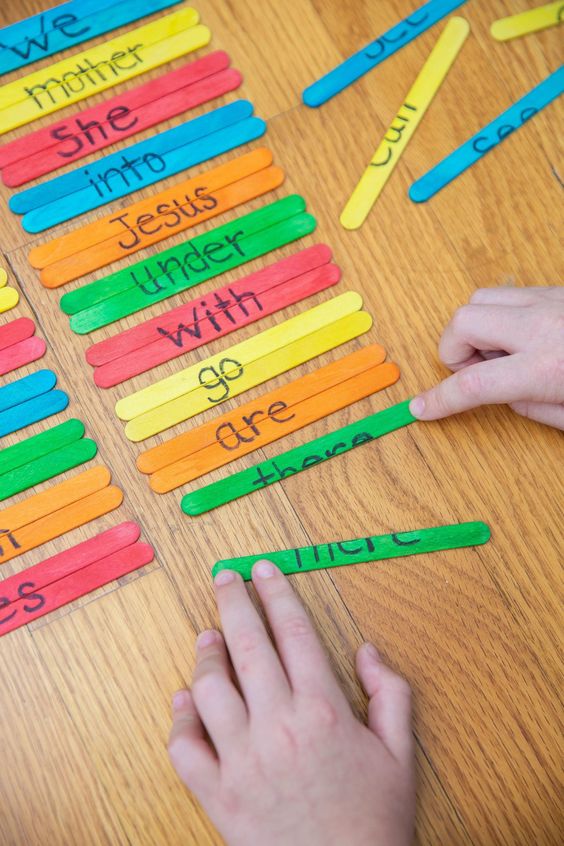
This word game for kids is easy to set up. Simply write words across the 2 popsicle sticks of the same color and let kids match up the two halves of the sticks. Use colored sticks for young readers or one color to make it a bit more difficult.
Learn more: Good and Beautiful
2. DIY Wordle
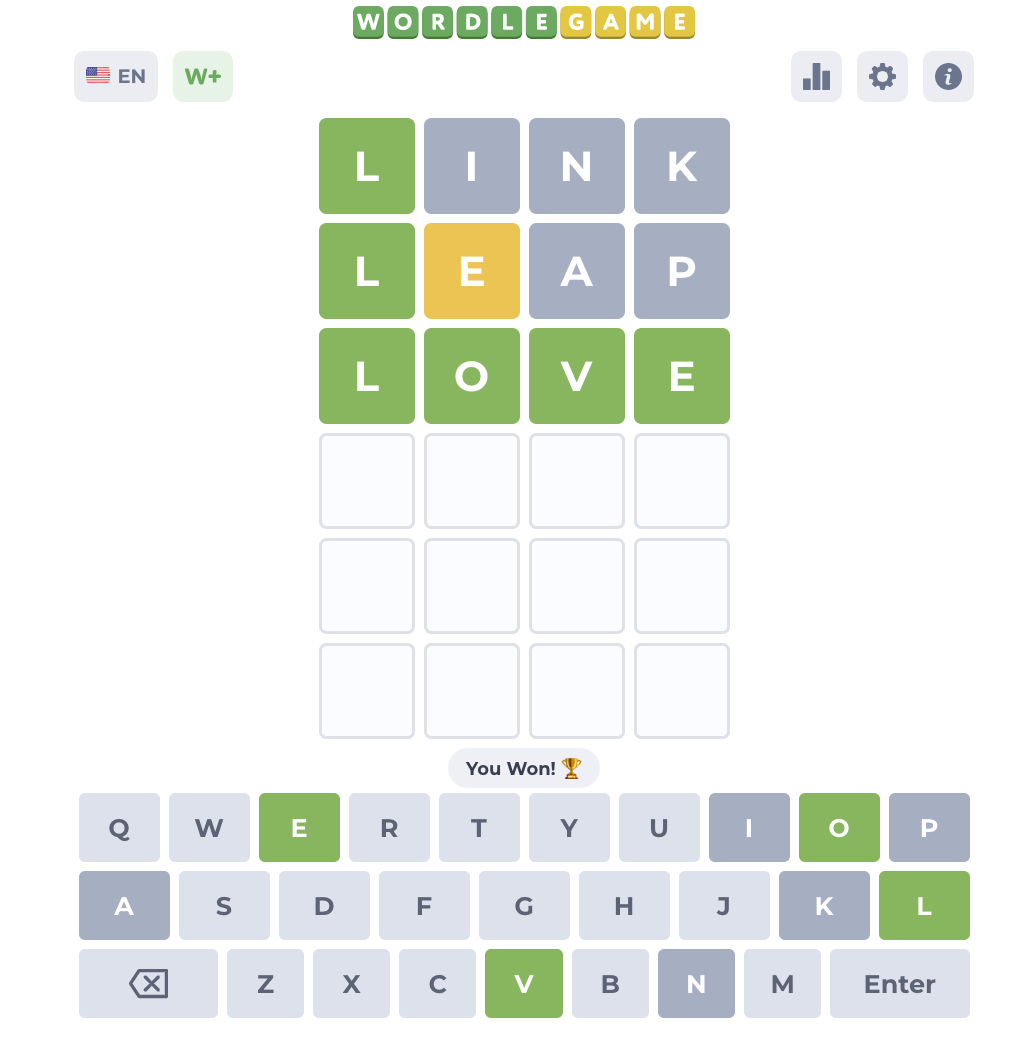
Wordle is the online word game that has taken the internet by storm. Create custom wordles for kids using words they know or might be learning at school. This DIY version is quick and easy to use and a favorite educational game among learners.
Learn more: Wordle
3. Stop the Bus

This is a classic classroom game that can also be played at home with just a piece of paper. Kids get assigned a letter and must produce one word in each category starting with that letter. It is a game of speed so their language skills are truly out to the test and truly the easiest paper game to set up.
Learn more: ISL Collective
4. Online Hangman
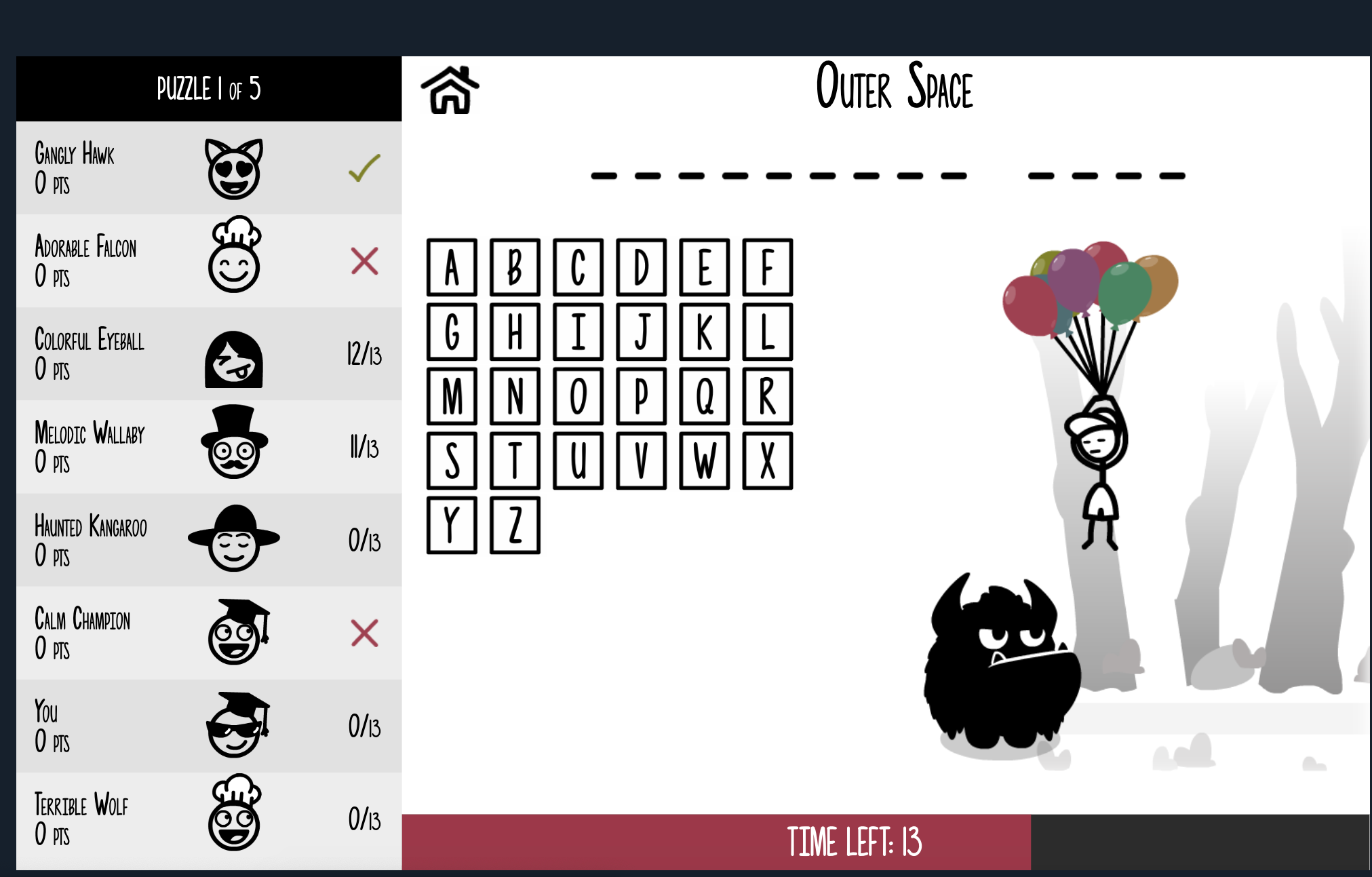
Hangman is one of the best classic word games out there but this fun online version puts a new spin on it. The man is floating above a hungry monster and each incorrect guess pops one of his balloons, bringing him closer to his doom. Don’t miss the chance to play this fun new version of one of the most popular word games of all time.
Learn more: Cool Math Games
5. Bananagrams
Bananagrams is a must-play word game for kids of all ages. It uses Scrabble-like letter tiles and players grab tiles and form words. Adding the element of time really puts their spelling skills and concentration skills to the test.
Learn more: Triple S Games
6. Make a Wordsearch
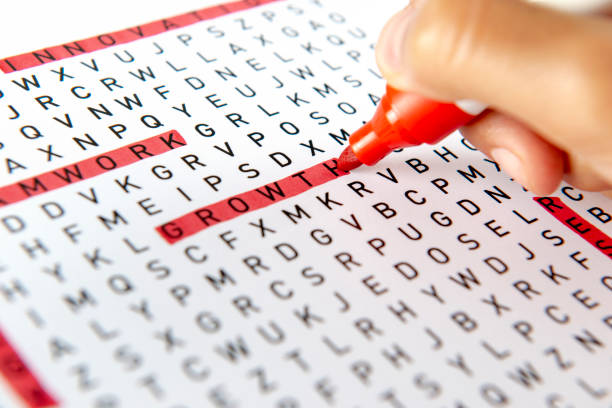
Create a custom word search for kids using words from their in-class theme or that link to a theme at home. You can even throw some silly words in the mix to make it more difficult or add their names for a fun surprise. This classic paper-based puzzle game remains a firm favorite word game.
Learn more: Discovery Education
7. Storytelling Game
Storytelling games are a great way for kids to use their spoken word skills. A spinner or story dice will give prompts for the story and dictate which direction it must go in. Kids can only use one word or one sentence at a time in this conversational game, forcing them to think quickly and creatively.
Learn more: The Colorful Apple
8. Wordicle
This should be a new addition to family game night as Wordicle combines a card game and a dice game to form the ultimate educational board game. Players roll the dice for random letters and use the letters on the cards in their hands to make the highest scoring word possible.
Learn more: UI School Supply
9. Toss the Balloon
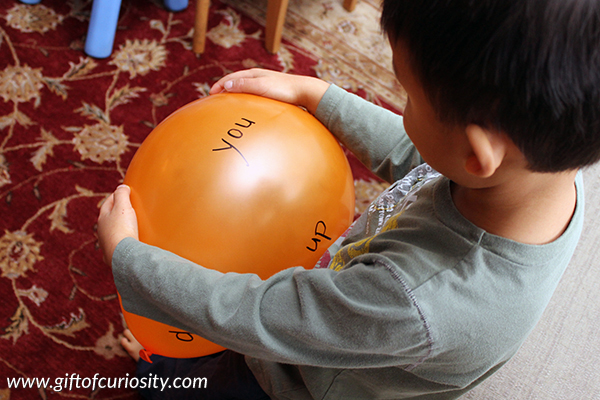
To start this sight word game, write a collection of words on a balloon. Toss the balloon in the air and let your child catch it. Whichever word is facing upwards should be read out loud and used in a sentence. Prompt kids who can write to write the words on the balloon themselves. This fun vocabulary game will have kids jumping for joy as they try to catch the balloon.
Learn more: Gift of Curiosity
10. Word Connect
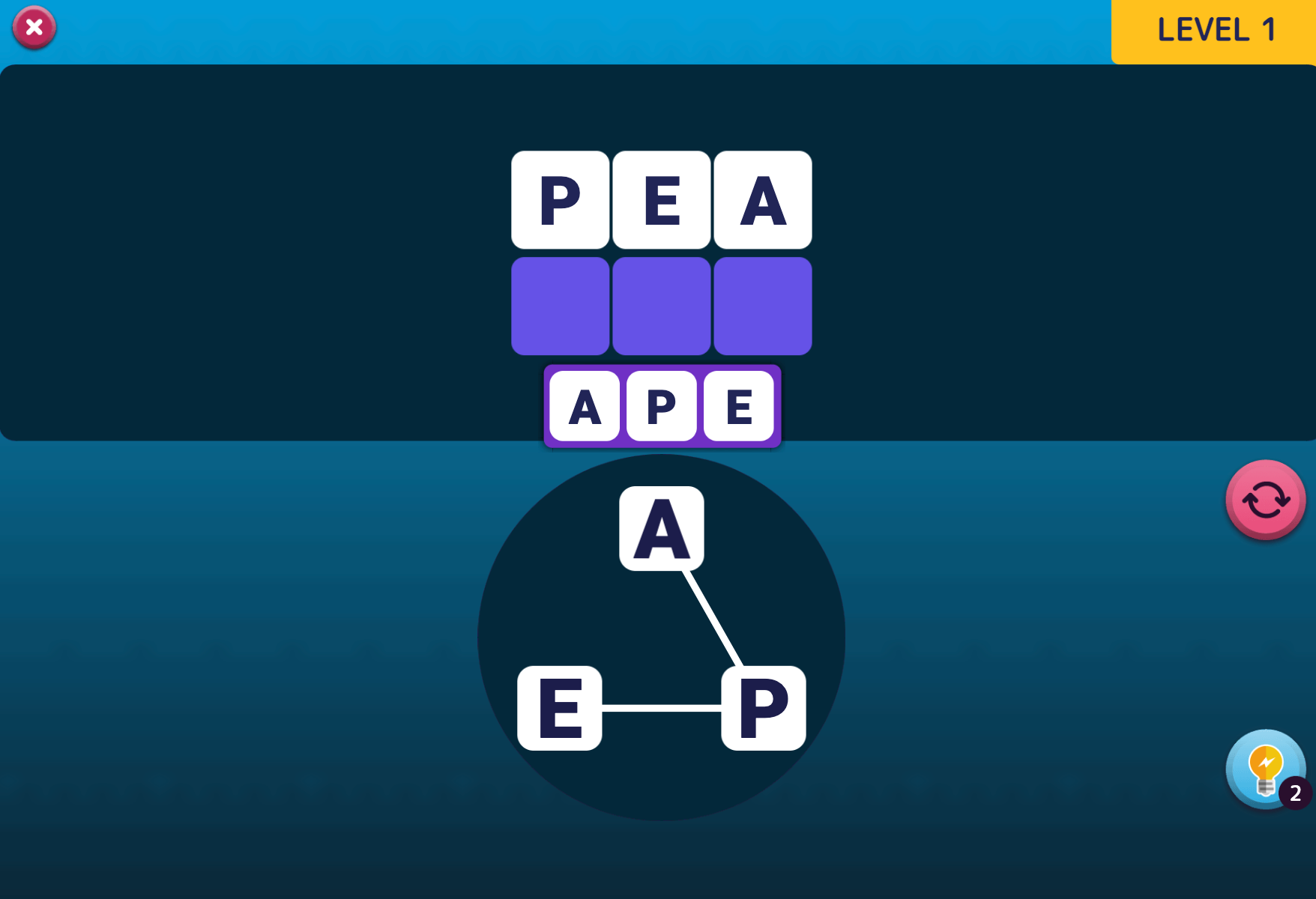
Word Connect is a fun spelling game that kids can play online. Simply connect the letters in the circle to create words using the same letters. Each level adds one more letter to the circle increasing the game difficulty. This game for kids helps build kids’ vocabulary as they discover new arrangements for the same letters.
Learn more: Mindgames
11. The Minister’s Cat
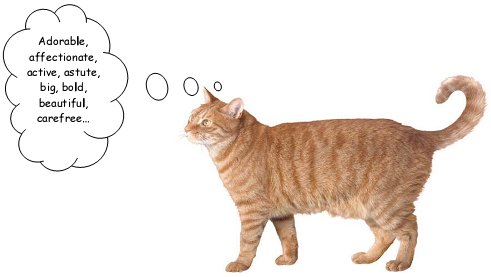
This classic game was a popular parlor game but can still be played to teach kids all about adjectives. Each player recites the phrase «The minister’s cat is a …» and adds an adjective to describe the cat, moving along the alphabet. An adorable cat, a bouncy cat, a cool cat, and so on. This is a great way to work on listening skills and memory skills as they cannot repeat words and hone alphabet skills as they should determine which letter to use next.
Learn more: Wild Billy
12. Hink Pinks
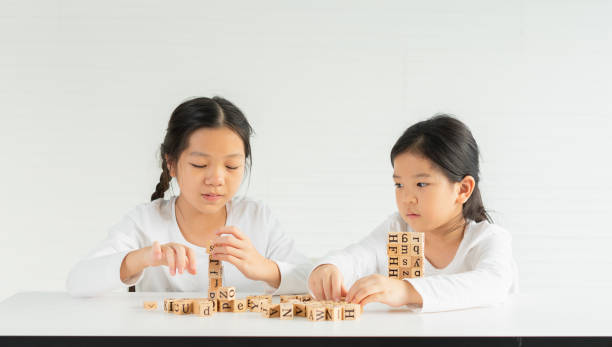
This fun word game for children is all about rhyming. One player must think of a rhyming phrase like «flat hat» or «wet pet». They should then use another phrase to describe it like «smashed fedora» or «soaked dog». It is up to other players to guess the rhyming 2 words.
Learn more: Hub Pages
13. Boggle
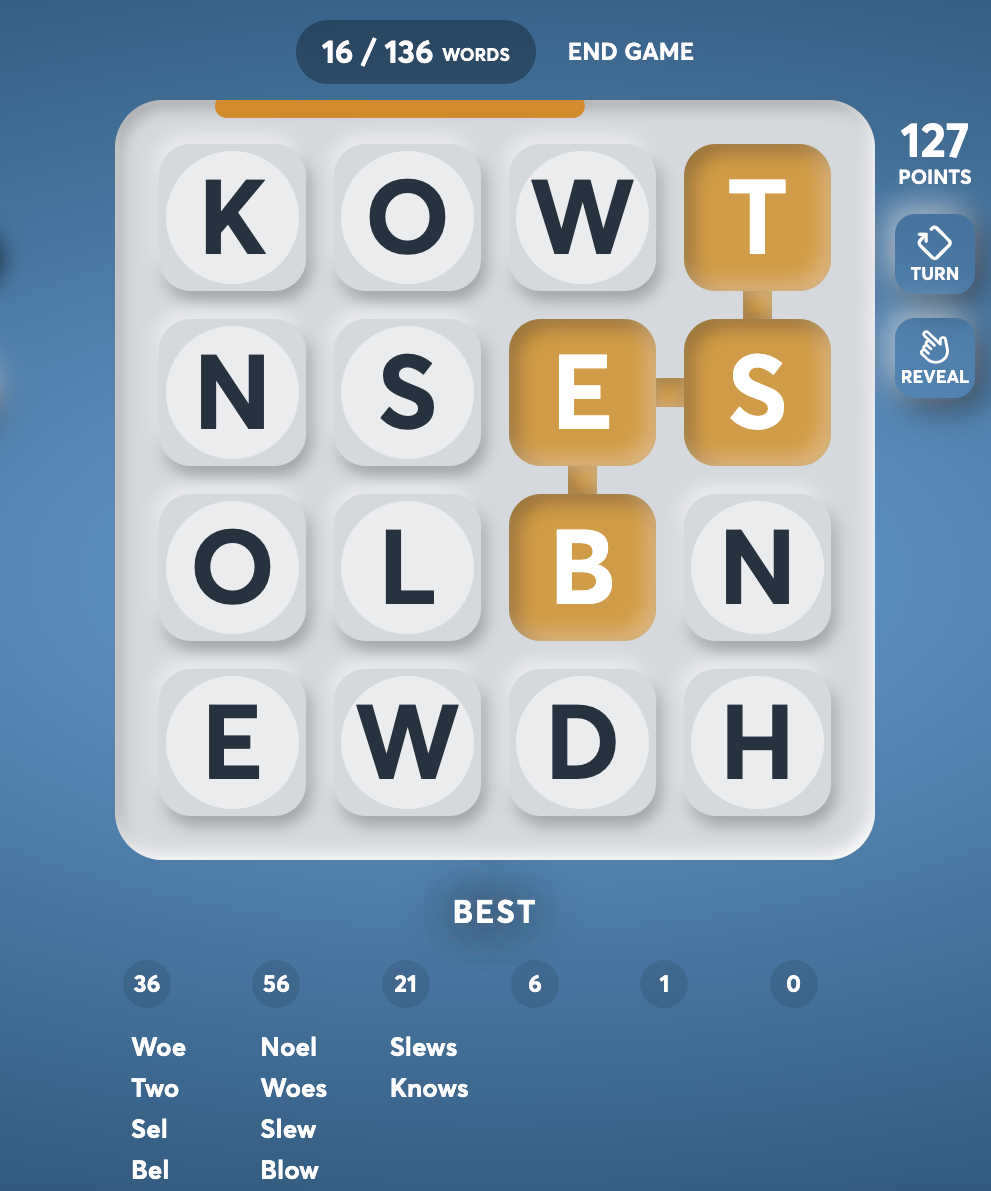
Boggle is a fun and educational game that has unlimited replayability. This handy online version allows you to play this challenging word game without buying the board game and is always handy on a mobile device.
Learn more: Wordshake
14. Blurt
Blurt is a fun new board game, perfect for players who always feel the need to blurt out an answer. One player reads out a description from a card and other players need to blurt out the word in question. Correct guesses will move you forward on the game board.
Learn more: The Dice Tower
15. Codenames
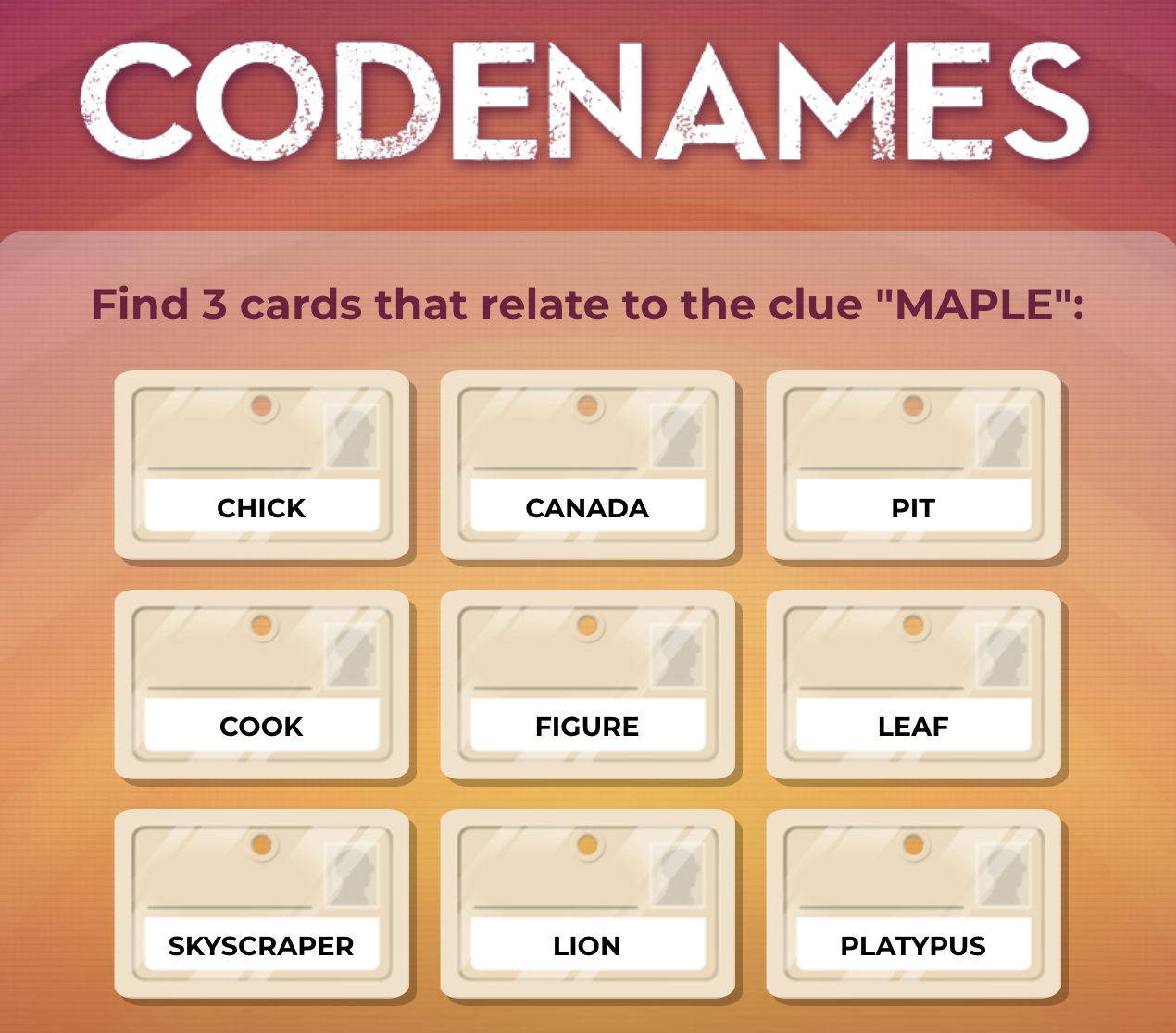
When it comes to word-based board games, few are as popular and well-known as Codenames. Players must call out a word that connects to one or more of the words on the playing cards. Their team must guess the word without accidentally guessing words assigned to the opposing team. This fun online version is free and lets kids play on their own too.
Learn more: Codenames
16. Sight Word Candyland
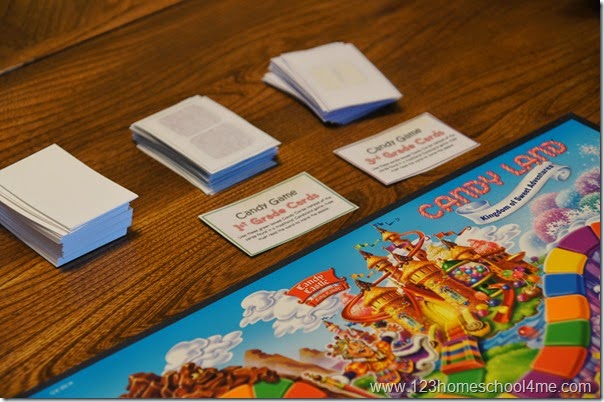
If you already own the Candyland board game, this adaptation is the perfect simple word game for your kids. This game works on literacy skills and minimizes screen time simultaneously and all you need to do is print out these free game printables. There are also cards for different grade levels so kids of many ages can play together, making it the perfect game for family time.
Learn more at 123 Homeschool 4 Me
17. Sight Word Splat
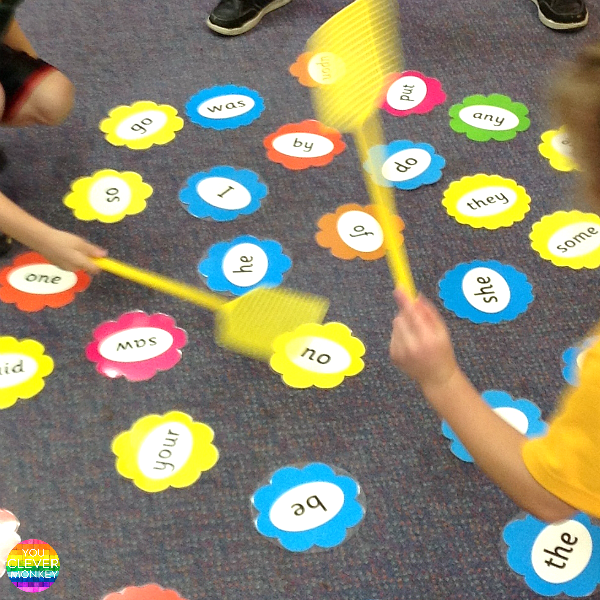
A couple of fly swatters quickly turn a normal sight word game into a very competitive word game. Write words on papers, laminated cards, or sticky notes, and let kids slap them with their fly swatters as you call them out. It is guaranteed to be a lively game as kids rush to show off their fundamental reading skills.
Learn more: You Clever Monkey
18. Silly Sentence Jenga
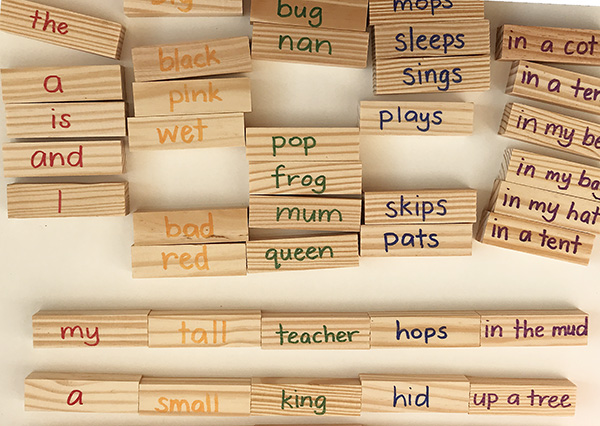
Write parts of a sentence on some Jenga blocks and let kids build sentences as they pull the pieces out in a hilarious game of Jenga. This printable word list will give you a good foundation for the game or you can replace them with your own words according to a theme or what your children like to learn about.
Learn more: Childhood 101
19. Secret Words
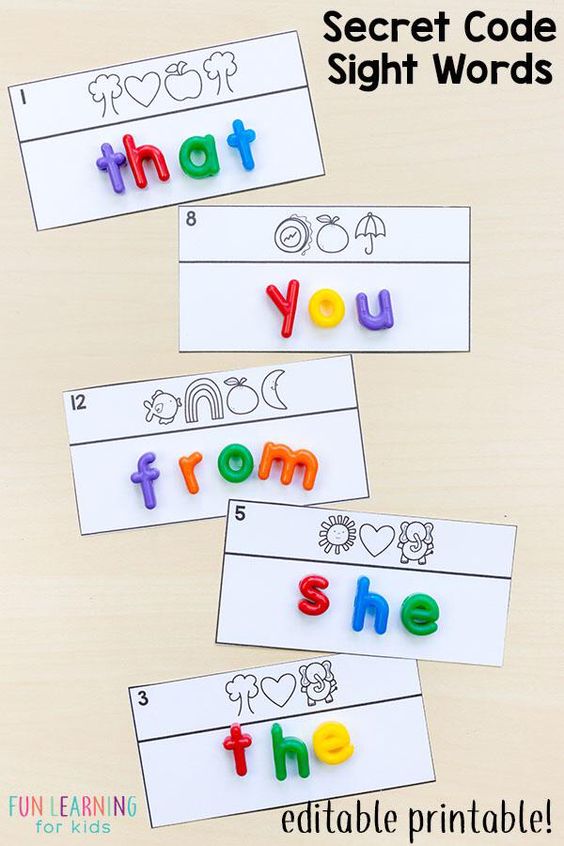
This vocabulary game for kids is great for language development. Print out cards that spell out a word using simple pictures to spell out a word. An apple would represent an «a» and a ball will represent a «b» for example. Kids can use magnetic letters, letter blocks, or scrabble tiles to decipher the secret words.
Learn more: Fun Learning For Kids
20. Word Hunt

Even the most reluctant learner will love going on a word treasure hunt. Put some sticky notes all over the house with words printed on them. Give kids a square grid with the matching words written in each block. Kids must find the sticky notes and complete their grid to win the game.
Learn more: Walking By The Way

Image: Shutterstock
One of the most effective ways for young children to gain knowledge and develop crucial abilities is through play. So, if you’re in search of some fun and educational activities to do at home, word games for kids are the perfect option to keep your little one engaged. This game also makes learning at home enjoyable and lays the foundation for successful school learning. Moreover, word games assist your kid improve their vocabulary, spelling, grammar, writing, reading, verbal, and communication skills. Parents can study alongside their kids as children like having their parents participate in their learning. In this post, we present you with a list of fantastic word games that kids and adults may enjoy together. Read on.
Benefits Of Word Games
If you are wondering why word games for children are beneficial, here are some reasons:
- Develops vocabulary
- Improves fluency in the language
- Hones comprehension and reasoning skills
- Develops a love of words and reading
- Sparks their imagination and memory
- Improves their problem-solving skills
- Encourages creativity
- Serves as a great pastime for the family
- Stimulates the brain
- Improves concentration
There are many word games for kids that help them learn new words. These games are entertaining and educational, making them enjoyable for everyone involved.
We have listed the 20 best word games for kids. These games will ensure you and your children have a great time learning new words.
1. Hangman

Image: Shutterstock
Hangman is a fun paper and pencil guessing word game for kids that can be played between two players. More players can participate and take turns as well. It is a simple game where a stickman is hanged if a player fails to get the word right.
Age group: 6 to 10 years
No of players: 2
How to play:
- Take a sheet of paper and a pen and draw gallows.
- The first player thinks of a word and draws dashes above the gallows equal to the number of letters in the word.
- The other player starts guessing the letters one by one.
- If the letter the player says is in the word, the first player writes it in the corresponding spaces on the dashes.
- If the letter is not in the word, the first player draws one part of the stickman, starting from the head and followed by the body, hands, and legs.
- If the stickman gets completed before the second player guesses the word, that player loses.
- Switch sides and start again.
- Proper nouns or slang words are not allowed.
2. Name the animal
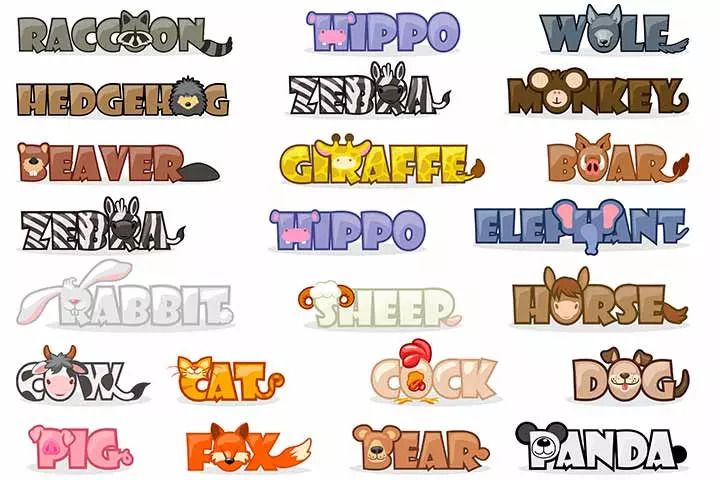
Image: Shutterstock
Name the animal is a multiplayer kids word game that can help teach your children animal names and improve their reasoning skills. This game also offers your child the opportunity to exercise their lateral thinking skills.
Age group: 4 to 7 years
No of players: 2 or more
How to play:
- You can be the host of the game.
- Make a list of common animals and a list of words that rhyme with these animal names.
- Call out each player and present them a rhyming word, and let them guess the animal name. You can say things like, “I rhyme with fog. I am a …..”
- The player who gets the maximum words correct is the winner.
- You can also teach them animal sounds by substituting animal names with their sounds.
3. I spy

Image: Shutterstock
I spy is one of the easiest games of the lot. All you need is your imagination and some eager players.
Age group: 4 to 6 years
No of players: 2 or more
How to play:
- Locate an object, and tell your child its first letter saying, “I Spy an object starting with the letter ….”
- Your child looks around and recognizes each object corresponding to that letter.
- Stop when they get it right and continue the game with the next player.
- You can also mention the color or shape of the object and let your child guess it correctly.
4. Make a word
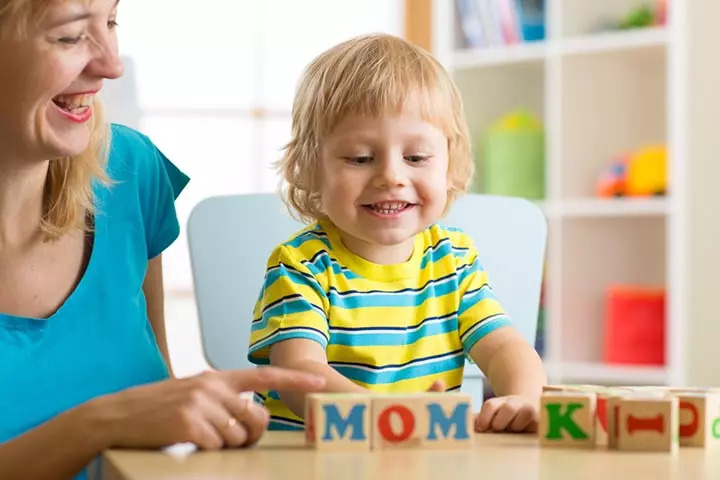
Image: Shutterstock
If your child is starting to learn new words, this word game for kids is useful. You can also play this game with older kids to make them learn difficult words and improve their memory. This game lays a solid foundation for playing advanced spelling games, such as Scrabble.
Age group: 4 to 12 years
No of players: 2 or more
How to play:
- You can play this game with younger children if you have magnetic letters, plastic letters, letter mats, or letter blocks.
- Give them a set of letters and ask them to make two- or three-letter words with them.
- For older children, you can play the game mentally or write a set of letters on a piece of paper and ask them to make as many words as they can from them.
- You can even play a timed version of the game with older children as they enjoy a good challenge.
5. Rhyming words

Image: Shutterstock
Rhyming Words game is a variation of Name the Animal. This word game for kids encourages your child to learn new words and helps hone their reasoning skills.
Age group: For ages 3 to 6 years
No of players: 2 or more
How to play:
- Name any animal.
- Ask your children to say the words that rhyme with the name of the animal, in turns.
- For example, when you say the word “dog,”your children should come up with words such as fog, hog, and log.
- Continue with a player until they run out of words and repeat the game with the next player.
6. Name, place, animal, thing

Image: IStock
You might remember playing this game as a child yourself. This game helps in expanding your child’s knowledge and memory.
Age group: 5 years and above
No of players: 2 or more
How to play:
- Give each player a sheet of paper and a pencil.
- Say a letter of the alphabet and start a timer.
- Each player must write the words of a name, place, animal, or a thing starting with that letter. For example, if the letter is A, a player may write, “Alex, Australia, Ape, Apple,” under each of these categories, respectively.
- You can assign different letters to different players or the same letter to each one.
- You can include other categories as per your convenience.
7. Hink pink
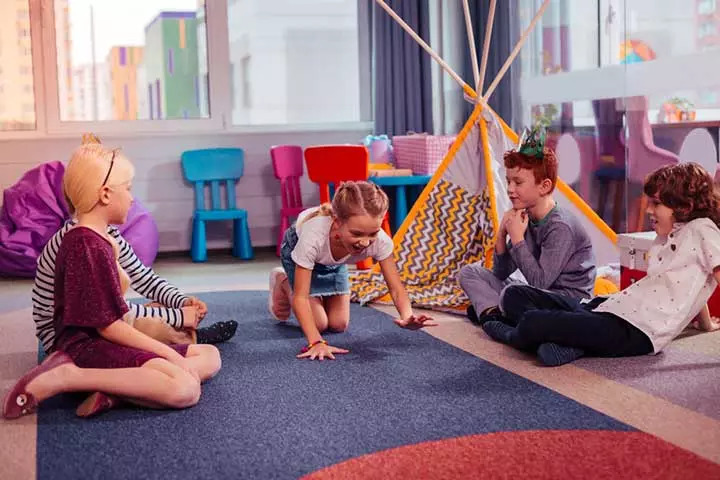
Image: Shutterstock
Children love this game. This word game for kids is designed to maximize fun while learning new words and their meanings. The game can help improve your child’s ability to solve crossword puzzles and cryptic crosswords.
Age group: 4 to 12 years
No of players: 2 or more
How to play:
- Ask each player to come up with a set of rhyming monosyllabic words, e.g., fat rat.
- Help them make a clue about their words. In this case, the clue will be “a rodent that is not thin.”
- Each player says their clue aloud, and the others try to guess what the rhyming words are.
- If the children are older, you can play Hinky Pinky (two-syllable words) or Hinketty Pinketty (three-syllable words). You can even make different combinations between different syllabic words.
- Ask the children to act out the words too so that all of you have lots of fun while the children learn difficult words.
- Here are some more words to get you started: Thin Pin, Big Pig, Tan Pan, Fan Man.
8. Guess the correct word
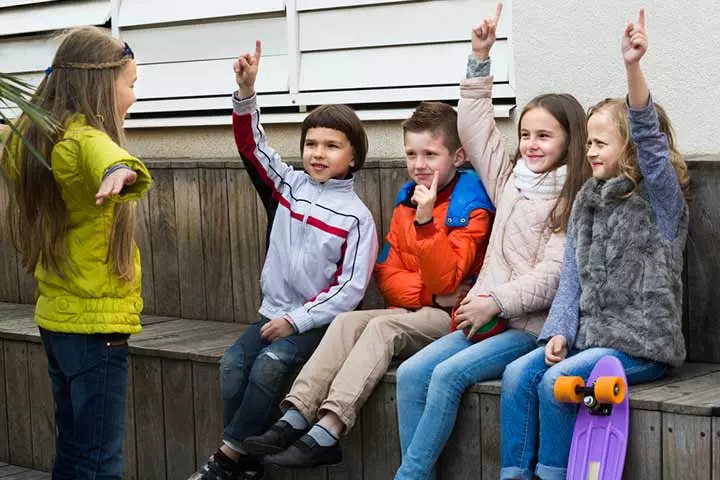
Image: Shutterstock
This word game for kids, if played mentally, is an excellent way to boost your child’s memory. It is a simple game and can be played with pencil and paper if you want to keep score.
Age group: 6 years and above
No of players: 2 or more
How to play:
- The first player thinks of a word and announces its first letter and the number of letters in the word to the others. If the player has thought of the word “Bananas,” they should say B and 6.
- The other players have to guess the word using these clues.
- If a player says another word but it has some matching words with the original word, the first player will say that the word is wrong but there are matching letters in the correct places or the wrong places.
- The next player uses these clues to make the next guess.
- You can keep the words simple or difficult according to the age of the children.
- As for the example of Bananas:
Player 2: Bullock
Player 1: That is incorrect
Player 3: Bahamas
Player 1: That is incorrect, but the As are in the correct place,
and so on.
9. Word hunting
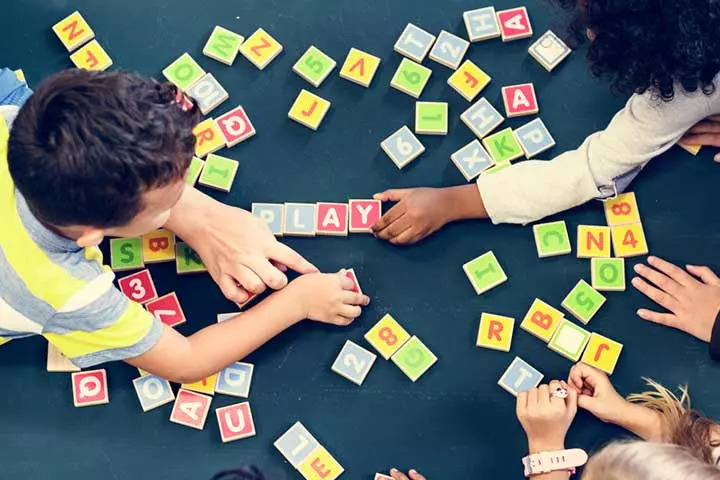
Image: Shutterstock
If your child is just learning the alphabet, this is an easy game to play. However, you can make some minor changes and tweak it for older children.
Age group: 4 to 7 years
No of players: 2 or more
How to play:
- Scatter magnetic letters, plastic letters, or letter blocks on a table.
- Ask your child to pick up a letter from the lot.
- For older children, you can write three- or four-letter words on little chits of paper and do the same procedure as above.
- For children who can read, you can ask them to pick words they see outside shops, etc.
10. Change one letter
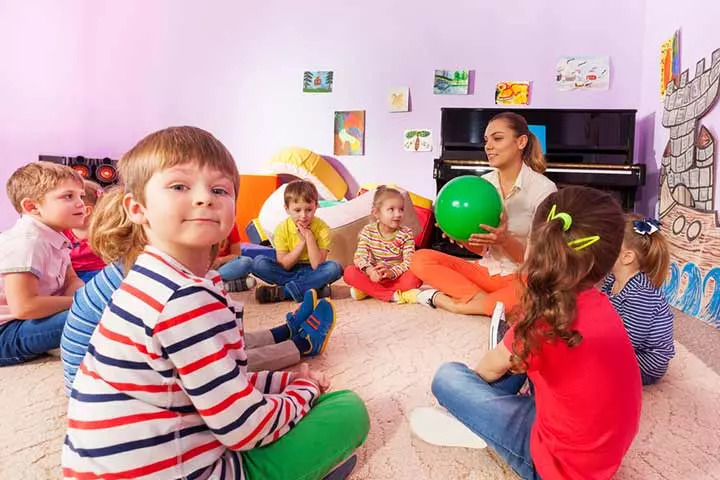
Image: Shutterstock
This is a great word game for school children. The game promotes out-of-the-box thinking and allows your child to come up with new words and even their meanings.
Age group: 5 to 10 years
No of players: 4 or more
How to play:
- Begin with a short word that has three, four, or five letters (according to the age of the children).
- Ask the children to take turns in calling out new words by changing just one letter of the previous word. E.g., park – part – dart – dark / mark – mare – mart / cart – care – case – cast – mast (and so on).
- You can set a timer or divide the players into teams to make the game more exciting.
11. Call my bluff
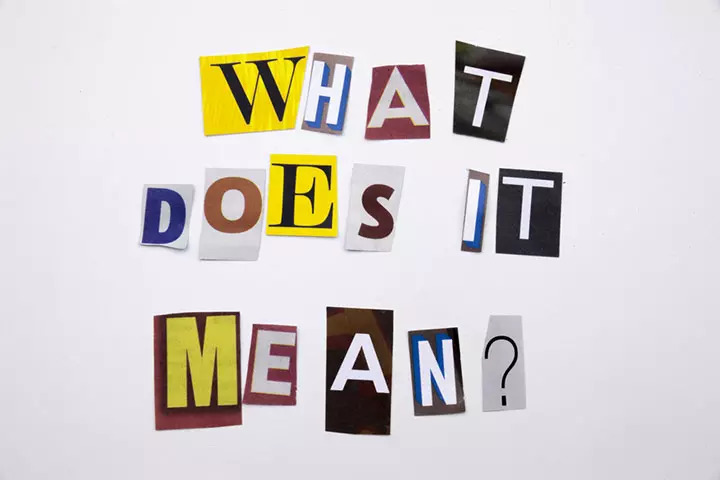
Image: Shutterstock
Call my bluff is commonly played at sleepovers and during picnics and is an excellent word game for older children.
Age group: 8 years and above
No of players: 4 or more
How to play:
- Divide the children into teams.
- Give them a set of words that are common but unfamiliar to them.
- Ask each team to look up the meaning of each word, and make up two wrong meanings for each word.
- Each team asks the other team the meaning of a word and gives them the three options.
- If the opposite team guesses the correct meaning, they get points. If they don’t, the team that asked the meaning gets the point.
- For example, let us take the word “Bewildered.” You can give three choices (a) to be left in the wild, (b) shocked or surprised, and (c) out-of-control behavior.
12. Unscramble the words
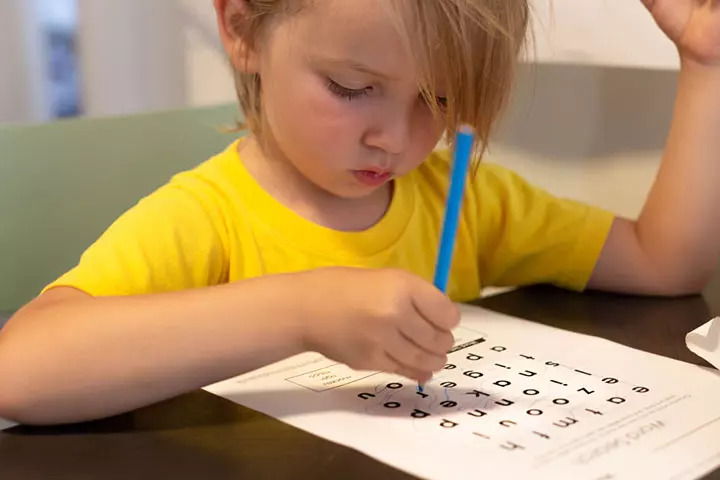
Image: Shutterstock
Let your children put on their thinking caps and play this game. The word game makes your child think and helps stir their imagination and improve their reasoning skills.
Age group: 5 years and above
No of players: 2 or more
How to play:
- Think of a word and write it down on paper but in a scrambled form.
- Your child has to think and arrange the word in the right sequence.
- You could even give clues so that they can unscramble the word faster.
- You could also write down a set of scrambled words, set the timer, and ask them to solve as many as they can within the allotted time.
13. Tell me a story

Image: Shutterstock
Children are incredibly imaginative. Children, as young as three years old, start making imaginary stories. You can play this game to fire your child’s imagination.
Age group: 5 years and above
No of players: 2 or more
How to play:
- Start a “story” with a sentence.
- The next player should say another sentence and continue the story.
- As the story grows, it becomes hilarious and absurd.
- For example, you start with the sentence, “In a village, there was a man named Joe.” The next player can say, “He wore a red shirt every day,” and the next player may say, “One day, a bull charged at him,” and so on.
14. Words in a word
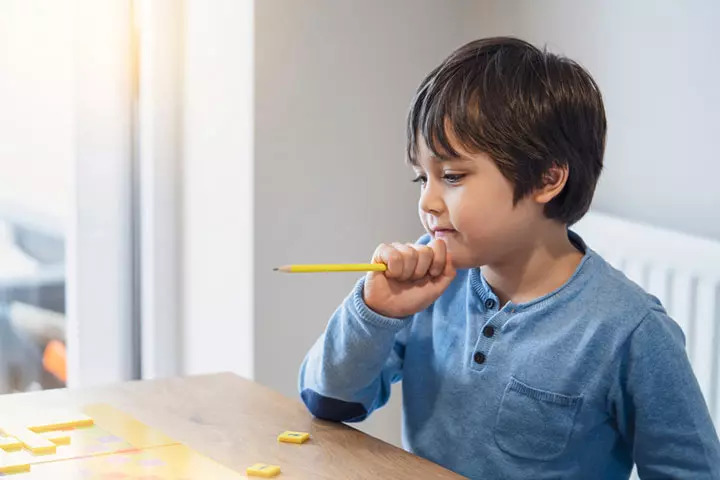
Image: Shutterstock
This is one of the most popular word games for kids and one of the best word-building games of all time. It is useful in improving your child’s English, if it is not your native language. You might have played this game in your childhood. It is now your children’s turn to play the game and keep the tradition alive.
Age group: 5 years and above
No of players: 2 or more
How to play:
- Think of a long word. A popular word choice for this game is “Constantinople.”
- Ask your child to write words starting with each letter in the word. They should use the letters contained in the word only.
- For example, Constantinople can have words such as con, cot, on, oil, no, nap, sit, and sip.
- You can set a timer and ask your child to write down as many words as they can within the given time frame.
15. I’m going on a picnic
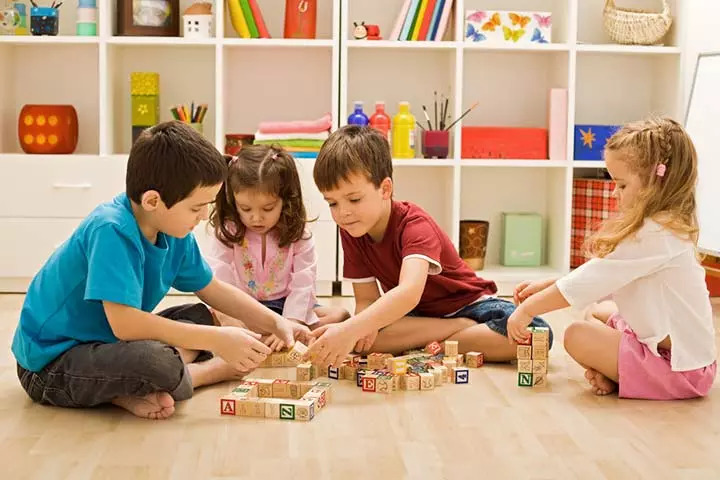
Image: Shutterstock
This game is for older children. It helps hone their creative skills and improves their memory. The word game is usually played in classrooms, but they can play it at a sleepover or even with you as a family game.
Age group: 5 years and above
No of players: 3 or more
How to play:
- The first player starts by saying, “I’m going on a picnic, and I will bring a ….”.
- The next player adds an item to the list and repeats the words.
- Each player has to repeat the items named in the exact sequence.
- If a player forgets a name or the sequence, they are out of the game.
- You can either start the game all over again or ask the next player to pick up the sequence and continue.
- For example, the game goes as follows:
Player 1: I’m going on a picnic, and I will bring a cookie.
Player 2: I’m going on a picnic, and I will bring a cookie and a Popsicle.
Player 3: I’m going on a picnic, and I will bring a cookie and a Popsicle and a bottle of juice, and so on.
16. Crosswords
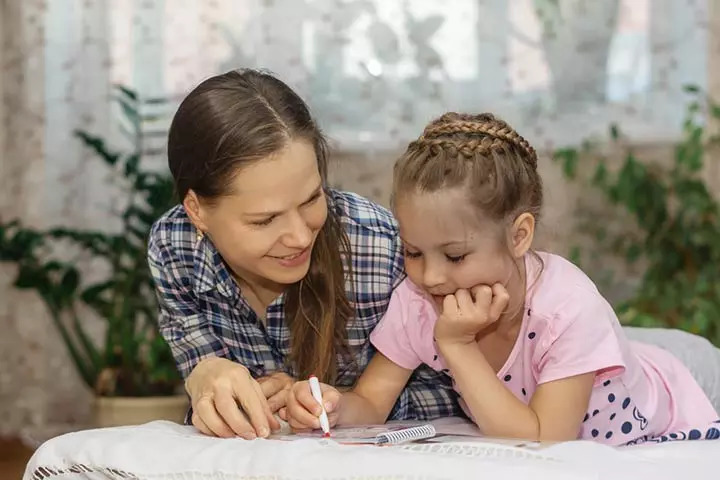
Image: Shutterstock
Solving crosswords requires practice and a lot of patience. The game will not only teach your children new words but also develop their deductive reasoning skills to a great degree.
Age group: 6 years and above
No of players: 1
How to play:
- Draw a grid with white and black squares and number each row and column.
- Then, write a set of clues at the bottom of the grid with the corresponding row or column number.
- Ask your child to solve the crossword.
- You can set a timer to make the game challenging.
- You can get some printable crosswords with clues easily on the Internet (you will find some free and printable crosswords in this link). Crosswords regularly appear in newspapers and magazines.
17. Word quest
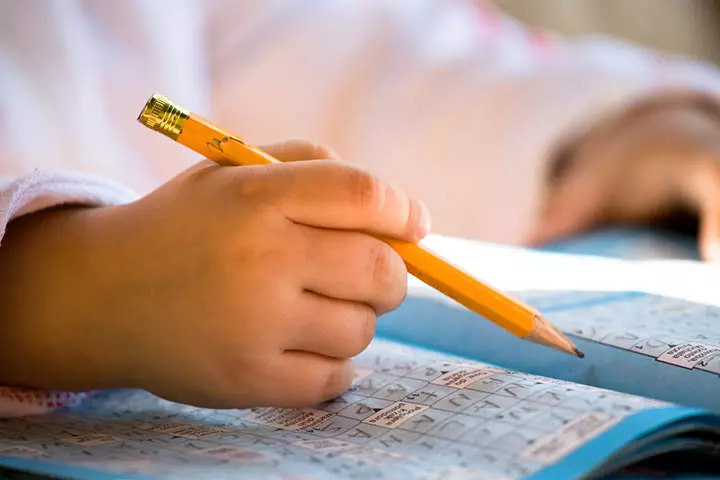
Image: IStock
Word quest is a word game for older kids. The game involves searching for words using single letters and makes your children use their deduction skills.
Age group: 5 years and above
No of players: 2 or more
How to play:
- Draw a 10×10 or 12×12 grid on a sheet of paper and divide it into squares.
- Write various words below and to the side of the grid.
- Write random letters in random squares.
- Ask your child to fill in the grid using the words you have written outside the grid.
18. Consequences

Image: Shutterstock
This word game helps stir the imagination and encourages creativity. The game works well with both children and adults.
Age group: 5 years and above
No of players: 2 or more
How to play:
- The first player writes down a sentence on a sheet of paper and passes it on to the next player.
- The next player writes the next sentence and passes it on.
- Once all the players are done with adding their sentences, you can read out the story.
- You can also write 4–5 sentences with open endings on a sheet of paper and hand them over to each player. Each player writes their version of the story and reads it aloud at the end of the game.
- For example, you can write, “There was a man named …….. He …………. a woman named ……………. They went to …………. He said, “…………………” She said, “……………………” And then, ……………..” and so on.
19. Scrabble
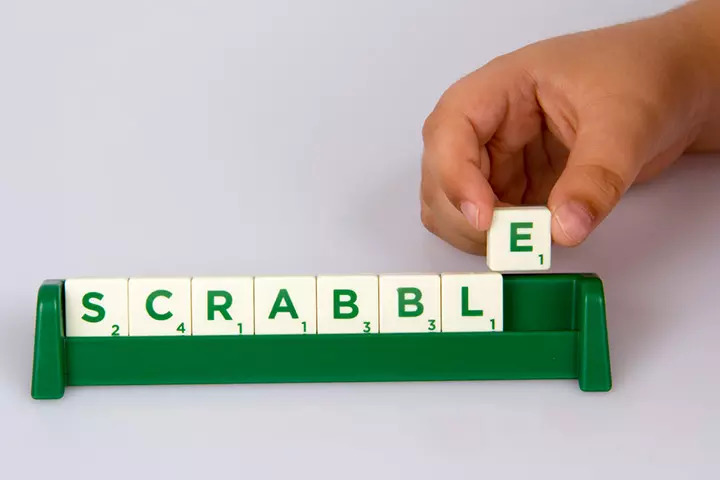
Image: IStock
Scrabble is a popular classic word game for kids. If you want your child to learn new words, this is one of the best games.
Age group: 6 years and above
No of players: 2 or more
How to play:
- Get a scrabble boards.
- Set it up and read the rules.
- The number on each letter tile tells you how many points it’s worth, and the squares on the board tell you how many points you scored.
- The player who gets the maximum score is the winner.
- After a game of Scrabble gets over, the board looks similar to a crossword.
20. Pass the bomb
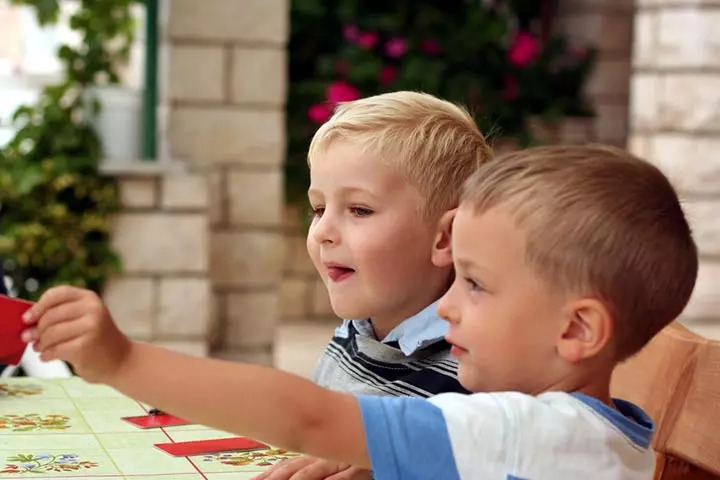
Image: Shutterstock
Pass the bomb is an educational game that will test your child’s alacrity. The first player should say a word and pass the bomb as quickly as possible to the next player, who must say a similar-sounding word. The players need to be quick in passing the bomb before it explodes. You can get this board game at a shop or simply make your own set.
Age group: 5 years and above
No of players: 2 or more
How to play:
- Take a set of card papers and write two- and three-letter words on them with a marker.
- The first player picks up a card and passes it around.
- The “bomb” goes off after a certain time. If you have made the cards at home, you can use a timer or even play music.
- The moment the timer goes off (or the music stops), the player holding the card is out.
- However, before leaving, they have to say a word that contains the word written on the card.
- For example, if the card has “ART” written on it, the child who gets out can say a word with ART in it, such as part, mart, or cart.
1. How can word games help children improve their spelling skills?
When children engage in word games, they are required to focus on the spelling of various words, which helps them to learn and remember the correct spelling of those words.
2. In what ways can word games help children with their grammar?
Word games encourage children to think about language playfully and engagingly, making it easier to understand and remember grammar rules. Word games can also help expand children’s vocabulary, an essential component of good grammar. By learning new words and their meanings, children can improve their ability to express themselves clearly and accurately.
3. How can word games help children improve their vocabulary?
Word games are an excellent way to improve children’s vocabulary skills, as they help them learn new words and reinforce their understanding of familiar ones. Games such as Scrabble, Boggle, and crossword puzzles challenge children to think critically and creatively about words, requiring them to use problem-solving skills to develop new words and find hidden ones.
4. How can word games help children become better readers?
Word games can help children become better readers by improving their vocabulary, spelling, and comprehension skills. Such games require children to identify and create words, helping them to recognize new words and understand their meanings. This eventually improves their reading skills.
When education is imparted as activities and games, children tend to grasp it much faster and retain it longer. So, if you want your children to have great communication skills, fluent vocabulary, and fascinating imagination, involve them in word games for kids. Games, such as I spy, make a word, or hink pink, are effective in keeping children engaged and sharpening their grammar and vocabulary. Another good thing about these games is that you can be involved in playing too. So, choose a suitable word game according to your child’s age and have fun while playing.
Key Pointers
- Word games stimulate the brain to improve reasoning skills, vocabulary, and language skills.
- Spur creativity through games such as I spy, rhyming words, and hink pink.
- Test the memory with games such as guess the correct word and make a word.
Was this article helpful?
The following two tabs change content below.
- Reviewer
- Author

